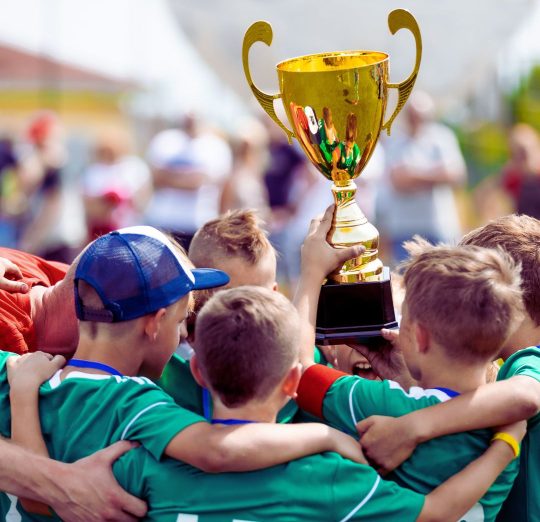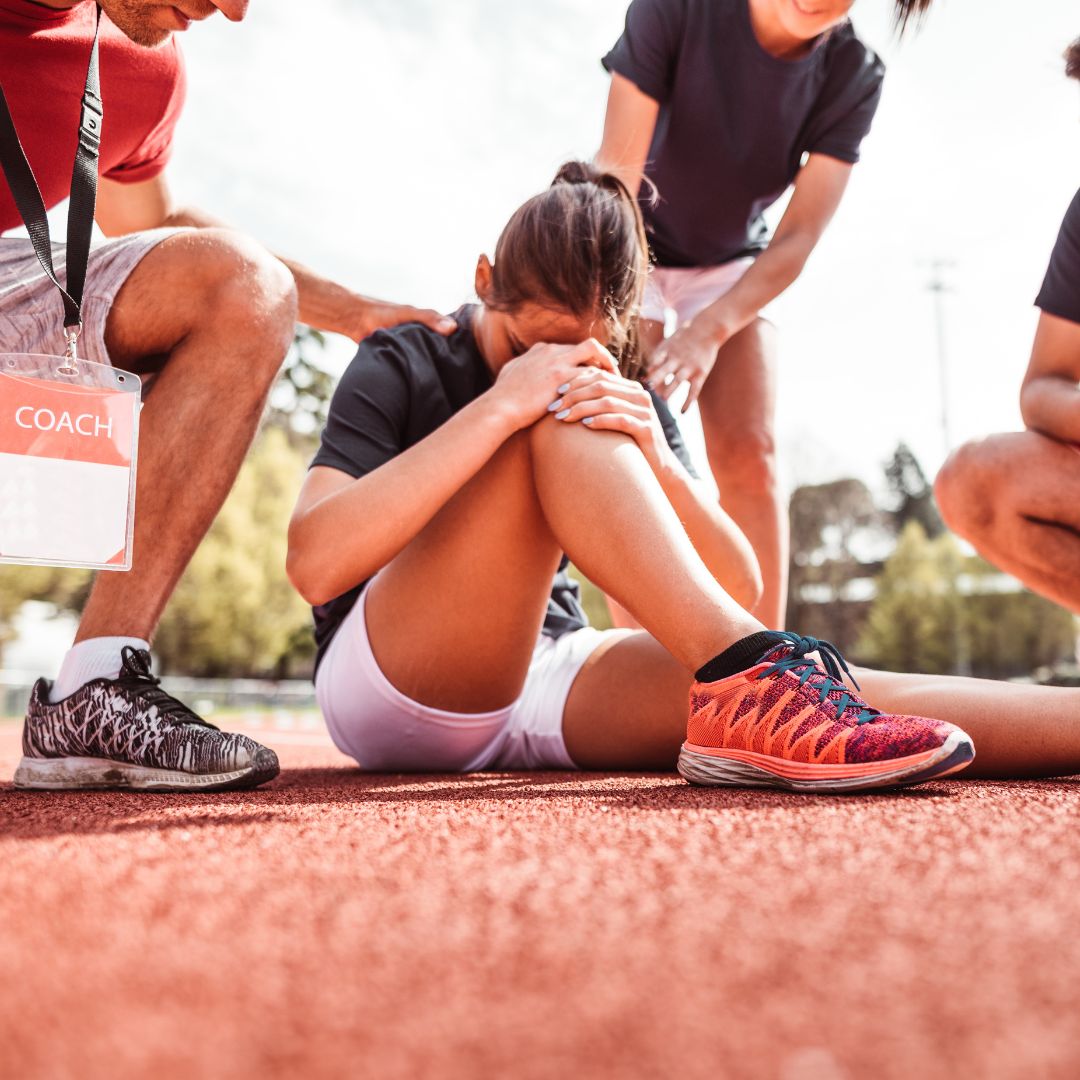Sports Psychologist in Vancouver, BC
We train the other half of the athlete
You want to work on your mental game, but how do you train your brain?
Mental training does not get much media attention, but at MindBalanceSPORT we know it is a game changer. The mental skills you will learn at MindBalanceSPORT are generalizable in the classroom, in sport and in life!
We know that mental skills can be successfully taught, even at an early age.

Our Services
Meet the Team





testimonials
Athlete Stories: Real Comebacks, Real Results

Emma, a high school basketball player, tore her ACL in the middle of her junior season. After surgery, she struggled with self-doubt and fear every time she stepped back on the court. Through sport psychology training, she learned visualization techniques and confidence-building exercises that helped her regain trust in her knee. When she returned for her senior season, she didn’t just play—she led her team to the playoffs.

Carlos, a soccer player, suffered a stress fracture in his foot and had to miss half of his season. Sitting out was mentally tougher than the pain itself. We worked on mental engagement strategies to keep him sharp—studying game film, setting small rehab goals, and using mental imagery to stay ready. When he was finally cleared, his confidence never wavered.

Jordan, a track athlete, strained her hamstring before a major competition. She feared losing speed and falling behind competitors. Instead of focusing on what she couldn’t do, we redirected her energy toward mental preparation, using self-talk and goal setting to keep her confidence strong. When she returned, she set a new personal record.
EXCELLENTTrustindex verifies that the original source of the review is Google. It was a great help to my 14-year-old competitive volleyball player daughter. Raven was great to understand and connect with her from start to end. We will continue with our sessions as needed.Trustindex verifies that the original source of the review is Google. Great results! I’ve loved working with Paula. Our sessions have greatly improved both the physical and mental aspects of my tennis game. I’m playing better and having more fun! Highly recommend!Trustindex verifies that the original source of the review is Google. Our family had a wonderful experience with Paula Castro. We needed some additional confidence in a particular area/sport and Paula helped get us there. We know who to turn to if we need help again. She’s been a Blessing. Thank you, Paula!Trustindex verifies that the original source of the review is Google. I highly recommend MindBalanceSPORT. Our son works with John Howard. John is very caring, positive, and effective at working with teenagers. John is an adept listener and created an individualized plan tailored to our son’s personality. After just a few sessions with John, we noticed a significant improvement in our son’s motivation and mental approach to sports and life in general. Our son looks forward to meeting with John and tells us that he benefits immensely from their connection.Trustindex verifies that the original source of the review is Google. Paula Castro is an outstanding professional on the field. She has helped my daughter improve her confidence, preparation, and thanks to these session she feels more prepared and motivated. Paula takes the time also to share (what she can) and align with us as parents to be on the same page. Strongly recommended!Trustindex verifies that the original source of the review is Google. MineBalanceSPORT has quickly become the area's expert in sports psychology. Their reputation is well deserved given their incredibly thoughtful, scientifically based approaches to treating performance-related conditions, and I have only heard glowing, positive feedback from those who have engaged in their program. I will also add that Drs. Jones and Chirby presented to us (our group comprises of 15+ doctors and masters level clinicans) about their program and impressed us all with their level of expertise and passion for this field. I give them my highest recommendation.Trustindex verifies that the original source of the review is Google. Dr. Jones was beyond helpful to me throughout our time together. If you are an athlete and you need advice or assistance this is the place to come to. She completely changed my outlook and mindset in a time when I needed her most. I look forward to staying in touch with her and am forever thankful for her expertise.Trustindex verifies that the original source of the review is Google. Paula has been a huge help with my daughter Morgan coming off her injury. It’s been 18 months since she’s played basketball and she’s thriving because I know Paula is guiding her the right direction. As a mother, I’m extremely gratefulTrustindex verifies that the original source of the review is Google. If you are looking for Amazing Psychologists who can help support you in your sports performance, you need to call MindBalanceSPORT! Dr. Chirby and her colleagues are a wealth of knowledge, they have so many helpful techniques for mind balance, and they have so much compassion for the communities that they serve! Highly recommend!!!
Recovery
While Everyone Has A Physical Ceiling, There Is No Mental Ceiling.
Exploring the Impact of Sports Counselling in Vancouver, BC on Athletes' Performance
The COVID-19 pandemic has had far-reaching impacts, with the sporting world being one of its most affected areas. Owing to the global health crisis, major events including the Summer Olympics and Paralympics games were postponed. This decision, while necessary for public health reasons, posed significant psychological challenges for athletes who had been preparing for these events. Here is where sports psychology played a crucial role.
In light of the pandemic, sports psychologists had to broaden their role to assist athletes in coping with an unprecedented situation.
Many athletes experienced a myriad of emotions due to event postponements or cancellations – disappointment, frustration, anxiety, and even relief. Sports psychologists provided a safe space for these athletes to express their feelings without fear of judgment.
With an uncertain future, setting new goals was challenging yet vital. Sports psychologists helped athletes redefine their objectives considering the new circumstances.
The uncertainty brought about by the pandemic led to increased stress levels among athletes. Psychologists used various methods such as mindfulness techniques and cognitive-behavioral therapy (CBT) to help them manage anxiety during this period of uncertainty.
Keeping motivation levels high during periods of inactivity can be challenging. Sports psychologists worked closely with Olympians and Paralympians to identify motivational sources that would keep them focused during lockdowns or training restrictions.
A key aspect here was maintaining a routine that mirrors their usual training schedule as closely as possible while adapting it to new constraints imposed by the pandemic.
Resilience is the ability to bounce back from adversity, a skill that is crucial for athletes in general and especially so during these challenging times. Psychologists focused on fostering resilience among athletes to help them cope with adversities brought about by the pandemic.
In summary, sports psychologists played a critical role during the COVID-19 pandemic, providing emotional support and psychological strategies to help Olympic and Paralympic athletes adapt to unprecedented circumstances. As we move forward, their role will continue to be important as they guide athletes through the evolving landscape shaped by this global crisis.
Discover the Role of Sports Psychologists in Vancouver, BC for Olympic and Paralympic Athletes Facing Event Postponements
The global COVID-19 pandemic has brought about unprecedented changes in the world of sports, with the postponement of the 2020 Olympic and Paralympic Games being one of the most significant disruptions. This section explores the emotional reactions of athletes to these event postponements and how they have adapted to overcome these challenges.
Exploring Performance Psychology in Vancouver, BC
Olympic and Paralympic athletes dedicate years, often decades, of their lives to train for these prestigious competitions. Therefore, when an announcement is made that such an event is postponed, it is not uncommon for athletes to experience a range of emotions.
- Disappointment: This is often the initial reaction. Athletes work tirelessly towards a specific event; hence, any delay can be disheartening.
- Uncertainty: With postponements come uncertain future plans. This lack of clear direction can lead to anxiety.
- Frustration: Athletes could feel frustrated due to disruption in their preparation schedule.
- Relief: In some instances, athletes may feel relief. The extra time could be useful for those dealing with injuries or needing more time to prepare.
Exploring Sport Performance Training in Vancouver, BC
Fortunately, elite athletes are no strangers to overcoming adversity.
Maintain Physical Fitness:
Athletes have improvised their training routines to maintain their physical fitness levels. Home-based workouts and individualized training schedules became a norm during lockdown periods.
Mental Conditioning:
The role of mental conditioning has been amplified during this period. From practicing mindfulness techniques such as meditation and visualization, athletes are recognizing that mental strength is just as important as physical prowess.
Embracing Technology:
Technology has been a saving grace for many during the lockdown. Athletes have turned to virtual platforms for coaching sessions, team meetings, and even competitions.
Setting New Goals:
With the delay in events, athletes have had an opportunity to reassess their goals. Many have found new focus areas and set revised targets to work towards.
Seeking Support:
Many athletes have sought the help of sports psychologists to navigate this challenging period. These professionals provide emotional support, coping strategies and encourage positive thinking.
Event postponements are undoubtedly challenging for Olympic and Paralympic athletes. However, their adaptability, resilience, and capacity for overcoming adversity are constantly being showcased during these difficult times. Today’s athletes are not just physically strong but also mentally equipped to handle setbacks and come out stronger on the other side.
The Role of a Sports Mental Coach in Vancouver, BC: Addressing Athletic Mental Health Challenges
The unprecedented postponement of the 2020 Olympic and Paralympic Games due to the COVID-19 pandemic has had a significant impact on athletes worldwide. The decision, while necessary, led many athletes facing an unexpected hiatus from competition and a drastic alteration to their training routines. This scenario has had profound effects on their mental health from a sports psychology perspective.
According to sports psychologists, athletes are accustomed to a structured regimen of training and competition. A sudden interruption can lead to feelings of disorientation, demotivation, and even depression.
- Uncertainty: Athletes were left in limbo with no definitive dates for their events. This uncertainty about their future can stimulate anxiety and stress.
- Disruption to Training Routines: Athletes typically follow strict training schedules leading up to major games. The postponement disrupted these routines, potentially leading to decreased motivation and decreased self-esteem.
- Social Isolation: Social distancing measures meant many athletes had limited interaction with their peers, trainers, or support network, increasing feelings of isolation.
Effects on Mental Health
Sports psychologists note that these factors can significantly affect an athlete’s mental health. They report increased levels of anxiety, depression, and stress amongst athletes post-postponement.
- Anxiety: Athletes experiencing uncertainty regarding their future may develop symptoms of anxiety such as restlessness or excessive worrying.
- Depression: Not being able to participate in scheduled competitions may lead some athletes to feel down or lose interest in activities they usually enjoy.
- Stress: Sudden changes in routine and isolation from support systems can cause high levels of stress.
Coping Mechanisms
- Mindfulness: Encouraging athletes to stay present and focused can reduce feelings of anxiety and depression.
- Exercise: Regular physical activity is a well-known mood booster and stress reliever. Athletes are encouraged to maintain their physical fitness even without the usual competition routine.
- Social Connection: Maintaining regular contact with their peers, coaches, and support network through digital means can help reduce feelings of isolation.
In an era where mental health awareness is gaining ground in athletics, the postponement of the 2020 Games brought to light the importance of psychological well-being in sports. It’s crucial that sports organizations recognize these effects and provide necessary support to their athletes – promoting mental resilience will be key to preparing for future events and overcoming any further adversities.
Exploring the Realm of Sports Psychiatry in Vancouver, BC for Olympic and Paralympic Athletes
As we delve into the realm of sports psychology, it is important to understand some of the key support mechanisms that these professionals provide to Olympic and Paralympic organizations. Ranging from mental conditioning and stress management techniques to counseling services, these mechanisms aim to enhance athlete performance, foster team cohesion, and promote overall psychological well-being.
Mental Conditioning Techniques
Sports psychologists provide athletes with mental conditioning techniques designed to improve focus, resilience, and mental strength.
- Goal Setting: Helps athletes define clear, achievable goals which can help them stay motivated and focused.
- Visualization: A process where athletes mentally rehearse their sport or movement in order to improve their performance.
- Mindfulness Training: Encourages awareness of the present moment which can help athletes stay focused during competitions.
Stress Management Techniques
High-intensity competitions like the Olympics or Paralympics can lead to increased stress levels in athletes.
- Relaxation Exercises: Includes deep breathing exercises, progressive muscle relaxation, and guided imagery that help reduce physical tension and quieten the mind.
- Cognitive Reappraisal: This technique helps athletes reframe negative thoughts into more positive ones which can help reduce anxiety levels.
- Biofeedback Techniques: Using electronic sensors to monitor physiological functions like heart rate or muscle tension so that athletes can control their physiological responses under stressful conditions.
Counseling Services
Counseling services are an integral part of support mechanisms provided by sports psychologists.
- Individual Counseling: One-on-one sessions aimed at resolving personal issues that might be affecting an athlete’s performance.
- Team Counseling: Group sessions aimed at improving team dynamics and cohesion.
- Crisis Intervention: Providing immediate assistance during critical incidents such as injury or sudden event postponement.
Education and Training
Sports psychologists also conduct workshops and training sessions to educate athletes, coaches, and teams about the psychological aspects of sports.
- Educating on the importance of mental health in sports.
- Teaching coping strategies for dealing with pressure and stress.
- Training on how to develop a strong team culture.
Collaboration with Other Professionals
Sports psychologists often work closely with other professionals such as nutritionists, physiotherapists, and sports medicine doctors. This collaborative approach helps provide holistic support to athletes, addressing not just their physical but also their mental well-being.
In a nutshell, the work of sports psychologists is multi-faceted and goes beyond the mere enhancement of athletic performance. Through various support mechanisms, they strive to create an environment that fosters both personal growth and professional development among athletes. Their role becomes even more critical in challenging times like the COVID-19 pandemic where athlete mental health is at significant risk.
Searching for a Sports Psychologist Near Me: Understanding Their Role in Empathy and Active Listening During Times of Uncertainty
As we have observed numerous times, sports psychologists play a significant role in the well-being of athletes, particularly in these uncertain times. Two essential skills in their arsenal are empathy and active listening – key facets that facilitate effective communication and help build strong relationships between psychologists and athletes.
Empathy in Sports Psychology
Empathy is the ability to understand and share the feelings of another individual. In the context of sports psychology, it involves understanding an athlete’s emotional experiences, thoughts, and behaviors. This understanding allows the psychologist to better assist athletes in coping with their challenges.
- Create a trusting relationship: Trust often forms the foundation of a successful psychologist-athlete relationship. When athletes perceive that their psychologist understands their feelings and viewpoints, they are more likely to trust them and open up about their concerns.
- Promote self-understanding: By mirroring an athlete’s feelings back to them, psychologists can help athletes gain insight into their own emotions.
- Facilitate change: Understanding an athlete’s emotional experience can aid in developing relevant interventions that address their unique needs.
Active Listening in Sports Psychology
Active listening consists of fully focusing on, understanding, then responding thoughtfully to what another person is saying. It is fundamentally different from passive hearing since it requires full engagement from the listener.
- It fosters openness: When athletes feel heard and understood, they are more likely to openly express their emotions and problems.
- It aids problem-solving: Active listening allows sports psychologists to accurately identify issues affecting athletes’ mental health.
- It helps set appropriate goals: By truly understanding what an athlete expresses, psychologists can help set realistic goals for mental health improvement.
The Integration Of Empathy And Active Listening During Times Of Uncertainty
In uncertain times, such as the COVID-19 pandemic, these skills become even more vital. Athletes may be dealing with unprecedented challenges like isolation, event cancellations, and changes in training routines. Empathy and active listening can assist sports psychologists in providing support that is sensitive to these unique circumstances.
- Validation of feelings: In uncertain situations, athletes’ emotions can be intense. Acknowledging these feelings normalizes their experience and assures them that it’s okay to feel this way.
- Creation of coping strategies: By understanding the specific issues athletes are facing, sports psychologists can develop tailored strategies to help them cope.
- Maintenance of motivation: Sports psychologists can help athletes to stay motivated by actively listening to their concerns and working collaboratively on solutions.
Ultimately, empathy and active listening are powerful tools for sports psychologists during times of uncertainty. By employing these skills effectively, they can significantly contribute to the mental well-being of athletes amidst any crisis.
Promoting Mental Health Awareness in Athletics: A Call to Action for Those Struggling
Just as physical fitness is a vital component of athletic performance, mental health is also crucial to an athlete’s overall well-being and performance. The pressure, stress, and intense training schedules can often put athletes at risk for developing mental health issues. Thus, it is paramount to promote mental health awareness amongst athletes.
The Importance of Mental Health Awareness in Athletics
Mental health is as important as physical health in sports. Athletes are not immune from mental health problems; they are actually at a higher risk due to the high-stress nature of sports. Mental toughness does not equate to psychological invulnerability.
- Depression, anxiety, eating disorders, and other serious psychological problems are common in athletes.
- Mental illness can affect performance, relationships with teammates and coaches, desire to compete or train, and overall quality of life.
- Recognizing symptoms early can lead to effective interventions and prevent more severe issues down the line.
Education
Awareness begins with education. We must educate athletes about the importance of mental health and the potential impact on their performance. This education should not only involve recognizing signs of distress but also promoting healthy coping mechanisms.
Open Dialogue
Creating a safe environment where athletes feel comfortable discussing their feelings and struggles can help combat stigma associated with mental illness. Regular team meetings dedicated to discussing mental health can facilitate this dialogue.
Incorporate Psychological Services
Sports organizations should incorporate psychological services into their regular conditioning programs. Offering these services proactively can help normalize the need for such support amongst athletes.
Training Coaches
Coaches play a pivotal role in an athlete’s life. Providing them with training on recognizing signs of poor mental health can enable early intervention.
A Call to Action
Promoting mental health awareness in athletics is more than just a suggestion—it’s a necessity.
- Create and implement mental health awareness programs targeted at athletes.
- Provide resources and support for athletes struggling with mental health issues.
- Encourage athletes to seek help when needed by normalizing the conversation around mental health.
This call to action is not just for coaches, families, sports psychologists or organizational leaders—it’s for everyone involved in athletics. A collective effort is necessary to create a healthier and more supportive environment for athletes. After all, true victory lies not just in winning medals but also in fostering sound physical and mental wellbeing for our athletes.
Areas Served
{“type”:”elementor”,”siteurl”:”https://mindbalancesport.com/wp-json/”,”elements”:[{“id”:”1ec31f7f”,”elType”:”widget”,”isInner”:false,”isLocked”:false,”settings”:{“content_width”:”full”,”tabs”:[{“tab_title”:”Atlanta”,”tab_content”:”<p><a href=\”https://mindbalancesport.com/counselling-atlanta-ga/\”><span data-sheets-root=\”1\”>Atlanta, GA, Sports Psychologist</span></a></p>”,”_id”:”cfd7191″,”tab_icon”:{“value”:””,”library”:””}},{“tab_title”:”Austin”,”tab_content”:”<p><a href=\”https://mindbalancesport.com/counselling-austin-tx/\”><span data-sheets-root=\”1\”>Austin, TX, Sports Psychologist</span></a></p>”,”_id”:”a1958b9″,”tab_icon”:{“value”:””,”library”:””}},{“tab_title”:”Boston”,”tab_content”:”<p><a href=\”https://mindbalancesport.com/counselling-boston-ma/\”><span data-sheets-root=\”1\”>Boston MA, Sports Psychologist</span></a></p>”,”_id”:”00296a9″,”tab_icon”:{“value”:””,”library”:””}},{“tab_title”:”Chicago”,”tab_content”:”<p><a href=\”https://mindbalancesport.com/counselling-chicago-il/\”><span data-sheets-root=\”1\”>Chicago IL, Sports Psychologist</span></a></p>”,”_id”:”9ae318a”,”tab_icon”:{“value”:””,”library”:””}},{“tab_title”:”Dallas”,”tab_content”:”<p><a href=\”https://mindbalancesport.com/counselling-dallas-tx/\”><span data-sheets-root=\”1\”>Dallas TX, Sports Psychologist</span></a></p>”,”_id”:”618889c”,”tab_icon”:{“value”:””,”library”:””}}],”selected_icon”:{“value”:”fas fa-caret-down”,”library”:”fa-solid”},”selected_active_icon”:{“value”:”fas fa-caret-square-up”,”library”:”fa-solid”},”title_typography_typography”:”custom”,”title_typography_text_decoration”:”none”,”icon_align”:”right”,”content_typography_typography”:”custom”,”__globals__”:{“title_color”:”globals/colors?id=accent”,”content_background_color”:”globals/colors?id=6c9a185″},”_background_image”:{“url”:””,”id”:””,”size”:””},”_background_video_fallback”:{“url”:””,”id”:””,”size”:””},”_background_slideshow_gallery”:[],”_background_hover_image”:{“url”:””,”id”:””,”size”:””},”_background_hover_video_fallback”:{“url”:””,”id”:””,”size”:””},”_background_hover_slideshow_gallery”:[],”_mask_image”:{“url”:””,”id”:””,”size”:””},”title_html_tag”:”div”,”faq_schema”:””,”border_width”:{“unit”:”px”,”size”:””,”sizes”:[]},”border_color”:””,”accordion_spacing”:{“unit”:”px”,”size”:””,”sizes”:[]},”title_color”:””,”title_background”:””,”tab_active_color”:””,”title_active_background”:””,”title_hover_color”:””,”title_hover_background”:””,”title_typography_font_family”:””,”title_typography_font_size”:{“unit”:”px”,”size”:””,”sizes”:[]},”title_typography_font_size_tablet”:{“unit”:”px”,”size”:””,”sizes”:[]},”title_typography_font_size_mobile”:{“unit”:”px”,”size”:””,”sizes”:[]},”title_typography_font_weight”:””,”title_typography_text_transform”:””,”title_typography_font_style”:””,”title_typography_line_height”:{“unit”:”px”,”size”:””,”sizes”:[]},”title_typography_line_height_tablet”:{“unit”:”em”,”size”:””,”sizes”:[]},”title_typography_line_height_mobile”:{“unit”:”em”,”size”:””,”sizes”:[]},”title_typography_letter_spacing”:{“unit”:”px”,”size”:””,”sizes”:[]},”title_typography_letter_spacing_tablet”:{“unit”:”px”,”size”:””,”sizes”:[]},”title_typography_letter_spacing_mobile”:{“unit”:”px”,”size”:””,”sizes”:[]},”title_typography_word_spacing”:{“unit”:”px”,”size”:””,”sizes”:[]},”title_typography_word_spacing_tablet”:{“unit”:”em”,”size”:””,”sizes”:[]},”title_typography_word_spacing_mobile”:{“unit”:”em”,”size”:””,”sizes”:[]},”text_stroke_text_stroke_type”:””,”text_stroke_text_stroke”:{“unit”:”px”,”size”:””,”sizes”:[]},”text_stroke_text_stroke_tablet”:{“unit”:”px”,”size”:””,”sizes”:[]},”text_stroke_text_stroke_mobile”:{“unit”:”px”,”size”:””,”sizes”:[]},”text_stroke_stroke_color”:”#000″,”title_shadow_text_shadow_type”:””,”title_shadow_text_shadow”:{“horizontal”:0,”vertical”:0,”blur”:10,”color”:”rgba(0,0,0,0.3)”},”title_padding”:{“unit”:”px”,”top”:””,”right”:””,”bottom”:””,”left”:””,”isLinked”:true},”title_padding_tablet”:{“unit”:”px”,”top”:””,”right”:””,”bottom”:””,”left”:””,”isLinked”:true},”title_padding_mobile”:{“unit”:”px”,”top”:””,”right”:””,”bottom”:””,”left”:””,”isLinked”:true},”toggle_title_radius”:{“unit”:”px”,”top”:””,”right”:””,”bottom”:””,”left”:””,”isLinked”:true},”toggle_title_border_border”:””,”toggle_title_border_width”:{“unit”:”px”,”top”:””,”right”:””,”bottom”:””,”left”:””,”isLinked”:true},”toggle_title_border_width_tablet”:{“unit”:”px”,”top”:””,”right”:””,”bottom”:””,”left”:””,”isLinked”:true},”toggle_title_border_width_mobile”:{“unit”:”px”,”top”:””,”right”:””,”bottom”:””,”left”:””,”isLinked”:true},”toggle_title_border_color”:””,”icon_color”:””,”icon_active_color”:””,”icon_hover_color”:””,”icon_size”:{“unit”:”px”,”size”:14,”sizes”:[]},”icon_size_tablet”:{“unit”:”px”,”size”:””,”sizes”:[]},”icon_size_mobile”:{“unit”:”px”,”size”:””,”sizes”:[]},”icon_offset”:{“unit”:”px”,”size”:””,”sizes”:[]},”icon_offset_tablet”:{“unit”:”px”,”size”:””,”sizes”:[]},”icon_offset_mobile”:{“unit”:”px”,”size”:””,”sizes”:[]},”toggle_icon_border_border”:””,”toggle_icon_border_width”:{“unit”:”px”,”top”:””,”right”:””,”bottom”:””,”left”:””,”isLinked”:true},”toggle_icon_border_width_tablet”:{“unit”:”px”,”top”:””,”right”:””,”bottom”:””,”left”:””,”isLinked”:true},”toggle_icon_border_width_mobile”:{“unit”:”px”,”top”:””,”right”:””,”bottom”:””,”left”:””,”isLinked”:true},”toggle_icon_border_color”:””,”toggle_icon_padding”:{“unit”:”px”,”top”:””,”right”:””,”bottom”:””,”left”:””,”isLinked”:true},”toggle_icon_padding_tablet”:{“unit”:”px”,”top”:””,”right”:””,”bottom”:””,”left”:””,”isLinked”:true},”toggle_icon_padding_mobile”:{“unit”:”px”,”top”:””,”right”:””,”bottom”:””,”left”:””,”isLinked”:true},”toggle_icon_radius”:{“unit”:”px”,”top”:””,”right”:””,”bottom”:””,”left”:””,”isLinked”:true},”icon_space”:{“unit”:”px”,”size”:””,”sizes”:[]},”icon_space_tablet”:{“unit”:”px”,”size”:””,”sizes”:[]},”icon_space_mobile”:{“unit”:”px”,”size”:””,”sizes”:[]},”tab_icon_size”:{“unit”:”px”,”size”:14,”sizes”:[]},”tab_icon_size_tablet”:{“unit”:”px”,”size”:””,”sizes”:[]},”tab_icon_size_mobile”:{“unit”:”px”,”size”:””,”sizes”:[]},”tab_icon_space”:{“unit”:”px”,”size”:””,”sizes”:[]},”tab_icon_space_tablet”:{“unit”:”px”,”size”:””,”sizes”:[]},”tab_icon_space_mobile”:{“unit”:”px”,”size”:””,”sizes”:[]},”content_background_color”:””,”content_color”:””,”content_typography_font_family”:””,”content_typography_font_size”:{“unit”:”px”,”size”:””,”sizes”:[]},”content_typography_font_size_tablet”:{“unit”:”px”,”size”:””,”sizes”:[]},”content_typography_font_size_mobile”:{“unit”:”px”,”size”:””,”sizes”:[]},”content_typography_font_weight”:””,”content_typography_text_transform”:””,”content_typography_font_style”:””,”content_typography_text_decoration”:””,”content_typography_line_height”:{“unit”:”px”,”size”:””,”sizes”:[]},”content_typography_line_height_tablet”:{“unit”:”em”,”size”:””,”sizes”:[]},”content_typography_line_height_mobile”:{“unit”:”em”,”size”:””,”sizes”:[]},”content_typography_letter_spacing”:{“unit”:”px”,”size”:””,”sizes”:[]},”content_typography_letter_spacing_tablet”:{“unit”:”px”,”size”:””,”sizes”:[]},”content_typography_letter_spacing_mobile”:{“unit”:”px”,”size”:””,”sizes”:[]},”content_typography_word_spacing”:{“unit”:”px”,”size”:””,”sizes”:[]},”content_typography_word_spacing_tablet”:{“unit”:”em”,”size”:””,”sizes”:[]},”content_typography_word_spacing_mobile”:{“unit”:”em”,”size”:””,”sizes”:[]},”content_shadow_text_shadow_type”:””,”content_shadow_text_shadow”:{“horizontal”:0,”vertical”:0,”blur”:10,”color”:”rgba(0,0,0,0.3)”},”content_padding”:{“unit”:”px”,”top”:””,”right”:””,”bottom”:””,”left”:””,”isLinked”:true},”content_padding_tablet”:{“unit”:”px”,”top”:””,”right”:””,”bottom”:””,”left”:””,”isLinked”:true},”content_padding_mobile”:{“unit”:”px”,”top”:””,”right”:””,”bottom”:””,”left”:””,”isLinked”:true},”content_padding_border_border”:””,”content_padding_border_width”:{“unit”:”px”,”top”:””,”right”:””,”bottom”:””,”left”:””,”isLinked”:true},”content_padding_border_width_tablet”:{“unit”:”px”,”top”:””,”right”:””,”bottom”:””,”left”:””,”isLinked”:true},”content_padding_border_width_mobile”:{“unit”:”px”,”top”:””,”right”:””,”bottom”:””,”left”:””,”isLinked”:true},”content_padding_border_color”:””,”_title”:””,”_margin”:{“unit”:”px”,”top”:””,”right”:””,”bottom”:””,”left”:””,”isLinked”:true},”_margin_tablet”:{“unit”:”px”,”top”:””,”right”:””,”bottom”:””,”left”:””,”isLinked”:true},”_margin_mobile”:{“unit”:”px”,”top”:””,”right”:””,”bottom”:””,”left”:””,”isLinked”:true},”_padding”:{“unit”:”px”,”top”:””,”right”:””,”bottom”:””,”left”:””,”isLinked”:true},”_padding_tablet”:{“unit”:”px”,”top”:””,”right”:””,”bottom”:””,”left”:””,”isLinked”:true},”_padding_mobile”:{“unit”:”px”,”top”:””,”right”:””,”bottom”:””,”left”:””,”isLinked”:true},”_element_width”:””,”_element_width_tablet”:””,”_element_width_mobile”:””,”_element_custom_width”:{“unit”:”%”,”size”:””,”sizes”:[]},”_element_custom_width_tablet”:{“unit”:”px”,”size”:””,”sizes”:[]},”_element_custom_width_mobile”:{“unit”:”px”,”size”:””,”sizes”:[]},”_grid_column”:””,”_grid_column_tablet”:””,”_grid_column_mobile”:””,”_grid_column_custom”:””,”_grid_column_custom_tablet”:””,”_grid_column_custom_mobile”:””,”_grid_row”:””,”_grid_row_tablet”:””,”_grid_row_mobile”:””,”_grid_row_custom”:””,”_grid_row_custom_tablet”:””,”_grid_row_custom_mobile”:””,”_flex_align_self”:””,”_flex_align_self_tablet”:””,”_flex_align_self_mobile”:””,”_flex_order”:””,”_flex_order_tablet”:””,”_flex_order_mobile”:””,”_flex_order_custom”:””,”_flex_order_custom_tablet”:””,”_flex_order_custom_mobile”:””,”_flex_size”:””,”_flex_size_tablet”:””,”_flex_size_mobile”:””,”_flex_grow”:1,”_flex_grow_tablet”:””,”_flex_grow_mobile”:””,”_flex_shrink”:1,”_flex_shrink_tablet”:””,”_flex_shrink_mobile”:””,”_element_vertical_align”:””,”_element_vertical_align_tablet”:””,”_element_vertical_align_mobile”:””,”_position”:””,”_offset_orientation_h”:”start”,”_offset_x”:{“unit”:”px”,”size”:0,”sizes”:[]},”_offset_x_tablet”:{“unit”:”px”,”size”:””,”sizes”:[]},”_offset_x_mobile”:{“unit”:”px”,”size”:””,”sizes”:[]},”_offset_x_end”:{“unit”:”px”,”size”:0,”sizes”:[]},”_offset_x_end_tablet”:{“unit”:”px”,”size”:””,”sizes”:[]},”_offset_x_end_mobile”:{“unit”:”px”,”size”:””,”sizes”:[]},”_offset_orientation_v”:”start”,”_offset_y”:{“unit”:”px”,”size”:0,”sizes”:[]},”_offset_y_tablet”:{“unit”:”px”,”size”:””,”sizes”:[]},”_offset_y_mobile”:{“unit”:”px”,”size”:””,”sizes”:[]},”_offset_y_end”:{“unit”:”px”,”size”:0,”sizes”:[]},”_offset_y_end_tablet”:{“unit”:”px”,”size”:””,”sizes”:[]},”_offset_y_end_mobile”:{“unit”:”px”,”size”:””,”sizes”:[]},”_z_index”:””,”_z_index_tablet”:””,”_z_index_mobile”:””,”_element_id”:””,”_css_classes”:””,”e_display_conditions”:””,”_element_cache”:””,”sina_is_morphing_animation”:””,”sina_transform_effects”:”none”,”sina_transform_perspective”:{“unit”:”px”,”size”:”1000″,”sizes”:[]},”sina_transform_perspective_tablet”:{“unit”:”px”,”size”:””,”sizes”:[]},”sina_transform_perspective_mobile”:{“unit”:”px”,”size”:””,”sizes”:[]},”sina_transform_effects_translateX”:{“unit”:”px”,”size”:”0″,”sizes”:[]},”sina_transform_effects_translateX_tablet”:{“unit”:”px”,”size”:””,”sizes”:[]},”sina_transform_effects_translateX_mobile”:{“unit”:”px”,”size”:””,”sizes”:[]},”sina_transform_effects_translateY”:{“unit”:”px”,”size”:”0″,”sizes”:[]},”sina_transform_effects_translateY_tablet”:{“unit”:”px”,”size”:””,”sizes”:[]},”sina_transform_effects_translateY_mobile”:{“unit”:”px”,”size”:””,”sizes”:[]},”sina_transform_effects_scaleX”:{“unit”:”px”,”size”:”1″,”sizes”:[]},”sina_transform_effects_scaleX_tablet”:{“unit”:”px”,”size”:””,”sizes”:[]},”sina_transform_effects_scaleX_mobile”:{“unit”:”px”,”size”:””,”sizes”:[]},”sina_transform_effects_scaleY”:{“unit”:”px”,”size”:”1″,”sizes”:[]},”sina_transform_effects_scaleY_tablet”:{“unit”:”px”,”size”:””,”sizes”:[]},”sina_transform_effects_scaleY_mobile”:{“unit”:”px”,”size”:””,”sizes”:[]},”sina_transform_effects_scaleZ”:{“unit”:”px”,”size”:”1″,”sizes”:[]},”sina_transform_effects_scaleZ_tablet”:{“unit”:”px”,”size”:””,”sizes”:[]},”sina_transform_effects_scaleZ_mobile”:{“unit”:”px”,”size”:””,”sizes”:[]},”sina_transform_effects_rotateX”:{“unit”:”px”,”size”:”0″,”sizes”:[]},”sina_transform_effects_rotateX_tablet”:{“unit”:”px”,”size”:””,”sizes”:[]},”sina_transform_effects_rotateX_mobile”:{“unit”:”px”,”size”:””,”sizes”:[]},”sina_transform_effects_rotateY”:{“unit”:”px”,”size”:”0″,”sizes”:[]},”sina_transform_effects_rotateY_tablet”:{“unit”:”px”,”size”:””,”sizes”:[]},”sina_transform_effects_rotateY_mobile”:{“unit”:”px”,”size”:””,”sizes”:[]},”sina_transform_effects_rotateZ”:{“unit”:”px”,”size”:”0″,”sizes”:[]},”sina_transform_effects_rotateZ_tablet”:{“unit”:”px”,”size”:””,”sizes”:[]},”sina_transform_effects_rotateZ_mobile”:{“unit”:”px”,”size”:””,”sizes”:[]},”sina_transform_effects_skewX”:{“unit”:”px”,”size”:”0″,”sizes”:[]},”sina_transform_effects_skewX_tablet”:{“unit”:”px”,”size”:””,”sizes”:[]},”sina_transform_effects_skewX_mobile”:{“unit”:”px”,”size”:””,”sizes”:[]},”sina_transform_effects_skewY”:{“unit”:”px”,”size”:”0″,”sizes”:[]},”sina_transform_effects_skewY_tablet”:{“unit”:”px”,”size”:””,”sizes”:[]},”sina_transform_effects_skewY_mobile”:{“unit”:”px”,”size”:””,”sizes”:[]},”sina_transform_effects_filters_css_filter”:””,”sina_transform_effects_filters_blur”:{“unit”:”px”,”size”:0,”sizes”:[]},”sina_transform_effects_filters_brightness”:{“unit”:”px”,”size”:100,”sizes”:[]},”sina_transform_effects_filters_contrast”:{“unit”:”px”,”size”:100,”sizes”:[]},”sina_transform_effects_filters_saturate”:{“unit”:”px”,”size”:100,”sizes”:[]},”sina_transform_effects_filters_hue”:{“unit”:”px”,”size”:0,”sizes”:[]},”sina_transform_effects_translateX_hover”:{“unit”:”px”,”size”:”0″,”sizes”:[]},”sina_transform_effects_translateX_hover_tablet”:{“unit”:”px”,”size”:””,”sizes”:[]},”sina_transform_effects_translateX_hover_mobile”:{“unit”:”px”,”size”:””,”sizes”:[]},”sina_transform_effects_translateY_hover”:{“unit”:”px”,”size”:”-10″,”sizes”:[]},”sina_transform_effects_translateY_hover_tablet”:{“unit”:”px”,”size”:””,”sizes”:[]},”sina_transform_effects_translateY_hover_mobile”:{“unit”:”px”,”size”:””,”sizes”:[]},”sina_transform_effects_scaleX_hover”:{“unit”:”px”,”size”:”1.05″,”sizes”:[]},”sina_transform_effects_scaleX_hover_tablet”:{“unit”:”px”,”size”:””,”sizes”:[]},”sina_transform_effects_scaleX_hover_mobile”:{“unit”:”px”,”size”:””,”sizes”:[]},”sina_transform_effects_scaleY_hover”:{“unit”:”px”,”size”:”1.05″,”sizes”:[]},”sina_transform_effects_scaleY_hover_tablet”:{“unit”:”px”,”size”:””,”sizes”:[]},”sina_transform_effects_scaleY_hover_mobile”:{“unit”:”px”,”size”:””,”sizes”:[]},”sina_transform_effects_scaleZ_hover”:{“unit”:”px”,”size”:”1.05″,”sizes”:[]},”sina_transform_effects_scaleZ_hover_tablet”:{“unit”:”px”,”size”:””,”sizes”:[]},”sina_transform_effects_scaleZ_hover_mobile”:{“unit”:”px”,”size”:””,”sizes”:[]},”sina_transform_effects_rotateX_hover”:{“unit”:”px”,”size”:”15″,”sizes”:[]},”sina_transform_effects_rotateX_hover_tablet”:{“unit”:”px”,”size”:””,”sizes”:[]},”sina_transform_effects_rotateX_hover_mobile”:{“unit”:”px”,”size”:””,”sizes”:[]},”sina_transform_effects_rotateY_hover”:{“unit”:”px”,”size”:”15″,”sizes”:[]},”sina_transform_effects_rotateY_hover_tablet”:{“unit”:”px”,”size”:””,”sizes”:[]},”sina_transform_effects_rotateY_hover_mobile”:{“unit”:”px”,”size”:””,”sizes”:[]},”sina_transform_effects_rotateZ_hover”:{“unit”:”px”,”size”:”5″,”sizes”:[]},”sina_transform_effects_rotateZ_hover_tablet”:{“unit”:”px”,”size”:””,”sizes”:[]},”sina_transform_effects_rotateZ_hover_mobile”:{“unit”:”px”,”size”:””,”sizes”:[]},”sina_transform_effects_skewX_hover”:{“unit”:”px”,”size”:”10″,”sizes”:[]},”sina_transform_effects_skewX_hover_tablet”:{“unit”:”px”,”size”:””,”sizes”:[]},”sina_transform_effects_skewX_hover_mobile”:{“unit”:”px”,”size”:””,”sizes”:[]},”sina_transform_effects_skewY_hover”:{“unit”:”px”,”size”:”5″,”sizes”:[]},”sina_transform_effects_skewY_hover_tablet”:{“unit”:”px”,”size”:””,”sizes”:[]},”sina_transform_effects_skewY_hover_mobile”:{“unit”:”px”,”size”:””,”sizes”:[]},”sina_transform_effects_filters_hover_css_filter”:””,”sina_transform_effects_filters_hover_blur”:{“unit”:”px”,”size”:0,”sizes”:[]},”sina_transform_effects_filters_hover_brightness”:{“unit”:”px”,”size”:100,”sizes”:[]},”sina_transform_effects_filters_hover_contrast”:{“unit”:”px”,”size”:100,”sizes”:[]},”sina_transform_effects_filters_hover_saturate”:{“unit”:”px”,”size”:100,”sizes”:[]},”sina_transform_effects_filters_hover_hue”:{“unit”:”px”,”size”:0,”sizes”:[]},”sina_transform_effects_duration”:{“unit”:”px”,”size”:”400″,”sizes”:[]},”de_scroll_animation”:”no”,”de_scroll_animation_preview”:”yes”,”de_scroll_translateX_popover_toggle”:”unchecked”,”de_scroll_translateX_distance”:”500″,”de_scroll_translateY_popover_toggle”:”unchecked”,”de_scroll_translateY_distance”:”500″,”de_scroll_rotate_popover_toggle”:”unchecked”,”de_scroll_rotate_distance”:”90″,”de_scroll_scale_popover_toggle”:”unchecked”,”de_scroll_scale_distance”:”1.5″,”de_scroll_skew_popover_toggle”:”unchecked”,”de_scroll_skew_distance”:”180″,”de_scroll_start_animate”:0,”de_scroll_finish_animate”:100,”de_scroll_animation_on_desktop”:”yes”,”de_scroll_animation_on_tablet”:”no”,”de_scroll_animation_on_mobile”:”no”,”de_reveal_animation”:””,”de_reveal_animation_type”:”default”,”de_reveal_animation_style”:”fu”,”de_reveal_curtain_direction”:”lr”,”de_reveal_curtain_color”:””,”de_reveal_curtain_delay”:”0″,”de_reveal_letter_effects”:”fx1″,”de_reveal_letter_initial_state”:”hidden”,”de_reveal_easing”:”linear”,”de_reveal_default_rotation”:”0″,”de_reveal_default_scale”:”1″,”de_reveal_distance”:”200″,”de_reveal_default_delay”:”0″,”de_reveal_duration”:”1000″,”de_reveal_direction”:”normal”,”de_reveal_loop”:”custom”,”de_reveal_custom_loop”:1,”de_reveal_start”:0.5,”de_reveal_animate_in_viewport”:”runonce”,”de_reveal_on_desktop”:”yes”,”de_reveal_on_tablet”:”yes”,”de_reveal_on_mobile”:”yes”,”de_staggering_animation”:””,”de_staggering_child_initial_state”:”inherited”,”de_staggering_animation_mousehover”:”inherited”,”de_staggering_animation_mouseout”:”inherited”,”motion_fx_motion_fx_scrolling”:””,”motion_fx_translateY_effect”:””,”motion_fx_translateY_direction”:””,”motion_fx_translateY_speed”:{“unit”:”px”,”size”:4,”sizes”:[]},”motion_fx_translateY_affectedRange”:{“unit”:”%”,”size”:””,”sizes”:{“start”:0,”end”:100}},”motion_fx_translateX_effect”:””,”motion_fx_translateX_direction”:””,”motion_fx_translateX_speed”:{“unit”:”px”,”size”:4,”sizes”:[]},”motion_fx_translateX_affectedRange”:{“unit”:”%”,”size”:””,”sizes”:{“start”:0,”end”:100}},”motion_fx_opacity_effect”:””,”motion_fx_opacity_direction”:”out-in”,”motion_fx_opacity_level”:{“unit”:”px”,”size”:10,”sizes”:[]},”motion_fx_opacity_range”:{“unit”:”%”,”size”:””,”sizes”:{“start”:20,”end”:80}},”motion_fx_blur_effect”:””,”motion_fx_blur_direction”:”out-in”,”motion_fx_blur_level”:{“unit”:”px”,”size”:7,”sizes”:[]},”motion_fx_blur_range”:{“unit”:”%”,”size”:””,”sizes”:{“start”:20,”end”:80}},”motion_fx_rotateZ_effect”:””,”motion_fx_rotateZ_direction”:””,”motion_fx_rotateZ_speed”:{“unit”:”px”,”size”:1,”sizes”:[]},”motion_fx_rotateZ_affectedRange”:{“unit”:”%”,”size”:””,”sizes”:{“start”:0,”end”:100}},”motion_fx_scale_effect”:””,”motion_fx_scale_direction”:”out-in”,”motion_fx_scale_speed”:{“unit”:”px”,”size”:4,”sizes”:[]},”motion_fx_scale_range”:{“unit”:”%”,”size”:””,”sizes”:{“start”:20,”end”:80}},”motion_fx_transform_origin_x”:”center”,”motion_fx_transform_origin_y”:”center”,”motion_fx_devices”:[“desktop”,”tablet”,”mobile”],”motion_fx_range”:””,”motion_fx_motion_fx_mouse”:””,”motion_fx_mouseTrack_effect”:””,”motion_fx_mouseTrack_direction”:””,”motion_fx_mouseTrack_speed”:{“unit”:”px”,”size”:1,”sizes”:[]},”motion_fx_tilt_effect”:””,”motion_fx_tilt_direction”:””,”motion_fx_tilt_speed”:{“unit”:”px”,”size”:4,”sizes”:[]},”handle_motion_fx_asset_loading”:””,”sticky”:””,”sticky_on”:[“desktop”,”tablet”,”mobile”],”sticky_offset”:0,”sticky_offset_tablet”:””,”sticky_offset_mobile”:””,”sticky_effects_offset”:0,”sticky_effects_offset_tablet”:””,”sticky_effects_offset_mobile”:””,”sticky_anchor_link_offset”:0,”sticky_anchor_link_offset_tablet”:””,”sticky_anchor_link_offset_mobile”:””,”sticky_parent”:””,”_animation”:””,”_animation_tablet”:””,”_animation_mobile”:””,”animation_duration”:””,”_animation_delay”:””,”_transform_rotate_popover”:””,”_transform_rotateZ_effect”:{“unit”:”px”,”size”:””,”sizes”:[]},”_transform_rotateZ_effect_tablet”:{“unit”:”deg”,”size”:””,”sizes”:[]},”_transform_rotateZ_effect_mobile”:{“unit”:”deg”,”size”:””,”sizes”:[]},”_transform_rotate_3d”:””,”_transform_rotateX_effect”:{“unit”:”px”,”size”:””,”sizes”:[]},”_transform_rotateX_effect_tablet”:{“unit”:”deg”,”size”:””,”sizes”:[]},”_transform_rotateX_effect_mobile”:{“unit”:”deg”,”size”:””,”sizes”:[]},”_transform_rotateY_effect”:{“unit”:”px”,”size”:””,”sizes”:[]},”_transform_rotateY_effect_tablet”:{“unit”:”deg”,”size”:””,”sizes”:[]},”_transform_rotateY_effect_mobile”:{“unit”:”deg”,”size”:””,”sizes”:[]},”_transform_perspective_effect”:{“unit”:”px”,”size”:””,”sizes”:[]},”_transform_perspective_effect_tablet”:{“unit”:”px”,”size”:””,”sizes”:[]},”_transform_perspective_effect_mobile”:{“unit”:”px”,”size”:””,”sizes”:[]},”_transform_translate_popover”:””,”_transform_translateX_effect”:{“unit”:”px”,”size”:””,”sizes”:[]},”_transform_translateX_effect_tablet”:{“unit”:”px”,”size”:””,”sizes”:[]},”_transform_translateX_effect_mobile”:{“unit”:”px”,”size”:””,”sizes”:[]},”_transform_translateY_effect”:{“unit”:”px”,”size”:””,”sizes”:[]},”_transform_translateY_effect_tablet”:{“unit”:”px”,”size”:””,”sizes”:[]},”_transform_translateY_effect_mobile”:{“unit”:”px”,”size”:””,”sizes”:[]},”_transform_scale_popover”:””,”_transform_keep_proportions”:”yes”,”_transform_scale_effect”:{“unit”:”px”,”size”:””,”sizes”:[]},”_transform_scale_effect_tablet”:{“unit”:”px”,”size”:””,”sizes”:[]},”_transform_scale_effect_mobile”:{“unit”:”px”,”size”:””,”sizes”:[]},”_transform_scaleX_effect”:{“unit”:”px”,”size”:””,”sizes”:[]},”_transform_scaleX_effect_tablet”:{“unit”:”px”,”size”:””,”sizes”:[]},”_transform_scaleX_effect_mobile”:{“unit”:”px”,”size”:””,”sizes”:[]},”_transform_scaleY_effect”:{“unit”:”px”,”size”:””,”sizes”:[]},”_transform_scaleY_effect_tablet”:{“unit”:”px”,”size”:””,”sizes”:[]},”_transform_scaleY_effect_mobile”:{“unit”:”px”,”size”:””,”sizes”:[]},”_transform_skew_popover”:””,”_transform_skewX_effect”:{“unit”:”px”,”size”:””,”sizes”:[]},”_transform_skewX_effect_tablet”:{“unit”:”deg”,”size”:””,”sizes”:[]},”_transform_skewX_effect_mobile”:{“unit”:”deg”,”size”:””,”sizes”:[]},”_transform_skewY_effect”:{“unit”:”px”,”size”:””,”sizes”:[]},”_transform_skewY_effect_tablet”:{“unit”:”deg”,”size”:””,”sizes”:[]},”_transform_skewY_effect_mobile”:{“unit”:”deg”,”size”:””,”sizes”:[]},”_transform_flipX_effect”:””,”_transform_flipY_effect”:””,”_transform_rotate_popover_hover”:””,”_transform_rotateZ_effect_hover”:{“unit”:”px”,”size”:””,”sizes”:[]},”_transform_rotateZ_effect_hover_tablet”:{“unit”:”deg”,”size”:””,”sizes”:[]},”_transform_rotateZ_effect_hover_mobile”:{“unit”:”deg”,”size”:””,”sizes”:[]},”_transform_rotate_3d_hover”:””,”_transform_rotateX_effect_hover”:{“unit”:”px”,”size”:””,”sizes”:[]},”_transform_rotateX_effect_hover_tablet”:{“unit”:”deg”,”size”:””,”sizes”:[]},”_transform_rotateX_effect_hover_mobile”:{“unit”:”deg”,”size”:””,”sizes”:[]},”_transform_rotateY_effect_hover”:{“unit”:”px”,”size”:””,”sizes”:[]},”_transform_rotateY_effect_hover_tablet”:{“unit”:”deg”,”size”:””,”sizes”:[]},”_transform_rotateY_effect_hover_mobile”:{“unit”:”deg”,”size”:””,”sizes”:[]},”_transform_perspective_effect_hover”:{“unit”:”px”,”size”:””,”sizes”:[]},”_transform_perspective_effect_hover_tablet”:{“unit”:”px”,”size”:””,”sizes”:[]},”_transform_perspective_effect_hover_mobile”:{“unit”:”px”,”size”:””,”sizes”:[]},”_transform_translate_popover_hover”:””,”_transform_translateX_effect_hover”:{“unit”:”px”,”size”:””,”sizes”:[]},”_transform_translateX_effect_hover_tablet”:{“unit”:”px”,”size”:””,”sizes”:[]},”_transform_translateX_effect_hover_mobile”:{“unit”:”px”,”size”:””,”sizes”:[]},”_transform_translateY_effect_hover”:{“unit”:”px”,”size”:””,”sizes”:[]},”_transform_translateY_effect_hover_tablet”:{“unit”:”px”,”size”:””,”sizes”:[]},”_transform_translateY_effect_hover_mobile”:{“unit”:”px”,”size”:””,”sizes”:[]},”_transform_scale_popover_hover”:””,”_transform_keep_proportions_hover”:”yes”,”_transform_scale_effect_hover”:{“unit”:”px”,”size”:””,”sizes”:[]},”_transform_scale_effect_hover_tablet”:{“unit”:”px”,”size”:””,”sizes”:[]},”_transform_scale_effect_hover_mobile”:{“unit”:”px”,”size”:””,”sizes”:[]},”_transform_scaleX_effect_hover”:{“unit”:”px”,”size”:””,”sizes”:[]},”_transform_scaleX_effect_hover_tablet”:{“unit”:”px”,”size”:””,”sizes”:[]},”_transform_scaleX_effect_hover_mobile”:{“unit”:”px”,”size”:””,”sizes”:[]},”_transform_scaleY_effect_hover”:{“unit”:”px”,”size”:””,”sizes”:[]},”_transform_scaleY_effect_hover_tablet”:{“unit”:”px”,”size”:””,”sizes”:[]},”_transform_scaleY_effect_hover_mobile”:{“unit”:”px”,”size”:””,”sizes”:[]},”_transform_skew_popover_hover”:””,”_transform_skewX_effect_hover”:{“unit”:”px”,”size”:””,”sizes”:[]},”_transform_skewX_effect_hover_tablet”:{“unit”:”deg”,”size”:””,”sizes”:[]},”_transform_skewX_effect_hover_mobile”:{“unit”:”deg”,”size”:””,”sizes”:[]},”_transform_skewY_effect_hover”:{“unit”:”px”,”size”:””,”sizes”:[]},”_transform_skewY_effect_hover_tablet”:{“unit”:”deg”,”size”:””,”sizes”:[]},”_transform_skewY_effect_hover_mobile”:{“unit”:”deg”,”size”:””,”sizes”:[]},”_transform_flipX_effect_hover”:””,”_transform_flipY_effect_hover”:””,”_transform_transition_hover”:{“unit”:”px”,”size”:””,”sizes”:[]},”motion_fx_transform_x_anchor_point”:””,”motion_fx_transform_x_anchor_point_tablet”:””,”motion_fx_transform_x_anchor_point_mobile”:””,”motion_fx_transform_y_anchor_point”:””,”motion_fx_transform_y_anchor_point_tablet”:””,”motion_fx_transform_y_anchor_point_mobile”:””,”_background_background”:””,”_background_color”:””,”_background_color_stop”:{“unit”:”%”,”size”:0,”sizes”:[]},”_background_color_stop_tablet”:{“unit”:”%”},”_background_color_stop_mobile”:{“unit”:”%”},”_background_color_b”:”#f2295b”,”_background_color_b_stop”:{“unit”:”%”,”size”:100,”sizes”:[]},”_background_color_b_stop_tablet”:{“unit”:”%”},”_background_color_b_stop_mobile”:{“unit”:”%”},”_background_gradient_type”:”linear”,”_background_gradient_angle”:{“unit”:”deg”,”size”:180,”sizes”:[]},”_background_gradient_angle_tablet”:{“unit”:”deg”},”_background_gradient_angle_mobile”:{“unit”:”deg”},”_background_gradient_position”:”center center”,”_background_gradient_position_tablet”:””,”_background_gradient_position_mobile”:””,”_background_image_tablet”:{“url”:””,”id”:””,”size”:””},”_background_image_mobile”:{“url”:””,”id”:””,”size”:””},”_background_position”:””,”_background_position_tablet”:””,”_background_position_mobile”:””,”_background_xpos”:{“unit”:”px”,”size”:0,”sizes”:[]},”_background_xpos_tablet”:{“unit”:”px”,”size”:0,”sizes”:[]},”_background_xpos_mobile”:{“unit”:”px”,”size”:0,”sizes”:[]},”_background_ypos”:{“unit”:”px”,”size”:0,”sizes”:[]},”_background_ypos_tablet”:{“unit”:”px”,”size”:0,”sizes”:[]},”_background_ypos_mobile”:{“unit”:”px”,”size”:0,”sizes”:[]},”_background_attachment”:””,”_background_repeat”:””,”_background_repeat_tablet”:””,”_background_repeat_mobile”:””,”_background_size”:””,”_background_size_tablet”:””,”_background_size_mobile”:””,”_background_bg_width”:{“unit”:”%”,”size”:100,”sizes”:[]},”_background_bg_width_tablet”:{“unit”:”px”,”size”:””,”sizes”:[]},”_background_bg_width_mobile”:{“unit”:”px”,”size”:””,”sizes”:[]},”_background_video_link”:””,”_background_video_start”:””,”_background_video_end”:””,”_background_play_once”:””,”_background_play_on_mobile”:””,”_background_privacy_mode”:””,”_background_slideshow_loop”:”yes”,”_background_slideshow_slide_duration”:5000,”_background_slideshow_slide_transition”:”fade”,”_background_slideshow_transition_duration”:500,”_background_slideshow_background_size”:””,”_background_slideshow_background_size_tablet”:””,”_background_slideshow_background_size_mobile”:””,”_background_slideshow_background_position”:””,”_background_slideshow_background_position_tablet”:””,”_background_slideshow_background_position_mobile”:””,”_background_slideshow_lazyload”:””,”_background_slideshow_ken_burns”:””,”_background_slideshow_ken_burns_zoom_direction”:”in”,”_background_hover_background”:””,”_background_hover_color”:””,”_background_hover_color_stop”:{“unit”:”%”,”size”:0,”sizes”:[]},”_background_hover_color_stop_tablet”:{“unit”:”%”},”_background_hover_color_stop_mobile”:{“unit”:”%”},”_background_hover_color_b”:”#f2295b”,”_background_hover_color_b_stop”:{“unit”:”%”,”size”:100,”sizes”:[]},”_background_hover_color_b_stop_tablet”:{“unit”:”%”},”_background_hover_color_b_stop_mobile”:{“unit”:”%”},”_background_hover_gradient_type”:”linear”,”_background_hover_gradient_angle”:{“unit”:”deg”,”size”:180,”sizes”:[]},”_background_hover_gradient_angle_tablet”:{“unit”:”deg”},”_background_hover_gradient_angle_mobile”:{“unit”:”deg”},”_background_hover_gradient_position”:”center center”,”_background_hover_gradient_position_tablet”:””,”_background_hover_gradient_position_mobile”:””,”_background_hover_image_tablet”:{“url”:””,”id”:””,”size”:””},”_background_hover_image_mobile”:{“url”:””,”id”:””,”size”:””},”_background_hover_position”:””,”_background_hover_position_tablet”:””,”_background_hover_position_mobile”:””,”_background_hover_xpos”:{“unit”:”px”,”size”:0,”sizes”:[]},”_background_hover_xpos_tablet”:{“unit”:”px”,”size”:0,”sizes”:[]},”_background_hover_xpos_mobile”:{“unit”:”px”,”size”:0,”sizes”:[]},”_background_hover_ypos”:{“unit”:”px”,”size”:0,”sizes”:[]},”_background_hover_ypos_tablet”:{“unit”:”px”,”size”:0,”sizes”:[]},”_background_hover_ypos_mobile”:{“unit”:”px”,”size”:0,”sizes”:[]},”_background_hover_attachment”:””,”_background_hover_repeat”:””,”_background_hover_repeat_tablet”:””,”_background_hover_repeat_mobile”:””,”_background_hover_size”:””,”_background_hover_size_tablet”:””,”_background_hover_size_mobile”:””,”_background_hover_bg_width”:{“unit”:”%”,”size”:100,”sizes”:[]},”_background_hover_bg_width_tablet”:{“unit”:”px”,”size”:””,”sizes”:[]},”_background_hover_bg_width_mobile”:{“unit”:”px”,”size”:””,”sizes”:[]},”_background_hover_video_link”:””,”_background_hover_video_start”:””,”_background_hover_video_end”:””,”_background_hover_play_once”:””,”_background_hover_play_on_mobile”:””,”_background_hover_privacy_mode”:””,”_background_hover_slideshow_loop”:”yes”,”_background_hover_slideshow_slide_duration”:5000,”_background_hover_slideshow_slide_transition”:”fade”,”_background_hover_slideshow_transition_duration”:500,”_background_hover_slideshow_background_size”:””,”_background_hover_slideshow_background_size_tablet”:””,”_background_hover_slideshow_background_size_mobile”:””,”_background_hover_slideshow_background_position”:””,”_background_hover_slideshow_background_position_tablet”:””,”_background_hover_slideshow_background_position_mobile”:””,”_background_hover_slideshow_lazyload”:””,”_background_hover_slideshow_ken_burns”:””,”_background_hover_slideshow_ken_burns_zoom_direction”:”in”,”_background_hover_transition”:{“unit”:”px”,”size”:””,”sizes”:[]},”_border_border”:””,”_border_width”:{“unit”:”px”,”top”:””,”right”:””,”bottom”:””,”left”:””,”isLinked”:true},”_border_width_tablet”:{“unit”:”px”,”top”:””,”right”:””,”bottom”:””,”left”:””,”isLinked”:true},”_border_width_mobile”:{“unit”:”px”,”top”:””,”right”:””,”bottom”:””,”left”:””,”isLinked”:true},”_border_color”:””,”_border_radius”:{“unit”:”px”,”top”:””,”right”:””,”bottom”:””,”left”:””,”isLinked”:true},”_border_radius_tablet”:{“unit”:”px”,”top”:””,”right”:””,”bottom”:””,”left”:””,”isLinked”:true},”_border_radius_mobile”:{“unit”:”px”,”top”:””,”right”:””,”bottom”:””,”left”:””,”isLinked”:true},”_box_shadow_box_shadow_type”:””,”_box_shadow_box_shadow”:{“horizontal”:0,”vertical”:0,”blur”:10,”spread”:0,”color”:”rgba(0,0,0,0.5)”},”_box_shadow_box_shadow_position”:” “,”_border_hover_border”:””,”_border_hover_width”:{“unit”:”px”,”top”:””,”right”:””,”bottom”:””,”left”:””,”isLinked”:true},”_border_hover_width_tablet”:{“unit”:”px”,”top”:””,”right”:””,”bottom”:””,”left”:””,”isLinked”:true},”_border_hover_width_mobile”:{“unit”:”px”,”top”:””,”right”:””,”bottom”:””,”left”:””,”isLinked”:true},”_border_hover_color”:””,”_border_radius_hover”:{“unit”:”px”,”top”:””,”right”:””,”bottom”:””,”left”:””,”isLinked”:true},”_border_radius_hover_tablet”:{“unit”:”px”,”top”:””,”right”:””,”bottom”:””,”left”:””,”isLinked”:true},”_border_radius_hover_mobile”:{“unit”:”px”,”top”:””,”right”:””,”bottom”:””,”left”:””,”isLinked”:true},”_box_shadow_hover_box_shadow_type”:””,”_box_shadow_hover_box_shadow”:{“horizontal”:0,”vertical”:0,”blur”:10,”spread”:0,”color”:”rgba(0,0,0,0.5)”},”_box_shadow_hover_box_shadow_position”:” “,”_border_hover_transition”:{“unit”:”px”,”size”:””,”sizes”:[]},”_mask_switch”:””,”_mask_shape”:”circle”,”_mask_notice”:””,”_mask_size”:”contain”,”_mask_size_tablet”:””,”_mask_size_mobile”:””,”_mask_size_scale”:{“unit”:”%”,”size”:100,”sizes”:[]},”_mask_size_scale_tablet”:{“unit”:”px”,”size”:””,”sizes”:[]},”_mask_size_scale_mobile”:{“unit”:”px”,”size”:””,”sizes”:[]},”_mask_position”:”center center”,”_mask_position_tablet”:””,”_mask_position_mobile”:””,”_mask_position_x”:{“unit”:”%”,”size”:0,”sizes”:[]},”_mask_position_x_tablet”:{“unit”:”px”,”size”:””,”sizes”:[]},”_mask_position_x_mobile”:{“unit”:”px”,”size”:””,”sizes”:[]},”_mask_position_y”:{“unit”:”%”,”size”:0,”sizes”:[]},”_mask_position_y_tablet”:{“unit”:”px”,”size”:””,”sizes”:[]},”_mask_position_y_mobile”:{“unit”:”px”,”size”:””,”sizes”:[]},”_mask_repeat”:”no-repeat”,”_mask_repeat_tablet”:””,”_mask_repeat_mobile”:””,”hide_desktop”:””,”hide_tablet”:””,”hide_mobile”:””,”_attributes”:””,”custom_css”:””},”defaultEditSettings”:{“defaultEditRoute”:”content”},”elements”:[],”widgetType”:”accordion”,”editSettings”:{“defaultEditRoute”:”content”,”panel”:{“activeTab”:”style”,”activeSection”:”section_toggle_style_title”},”activeItemIndex”:1}}]}{“type”:”elementor”,”siteurl”:”https://mindbalancesport.com/wp-json/”,”elements”:[{“id”:”1ec31f7f”,”elType”:”widget”,”isInner”:false,”isLocked”:false,”settings”:{“content_width”:”full”,”tabs”:[{“tab_title”:”Atlanta”,”tab_content”:”<p><a href=\”https://mindbalancesport.com/counselling-atlanta-ga/\”><span data-sheets-root=\”1\”>Atlanta, GA, Sports Psychologist</span></a></p>”,”_id”:”cfd7191″,”tab_icon”:{“value”:””,”library”:””}},{“tab_title”:”Austin”,”tab_content”:”<p><a href=\”https://mindbalancesport.com/counselling-austin-tx/\”><span data-sheets-root=\”1\”>Austin, TX, Sports Psychologist</span></a></p>”,”_id”:”a1958b9″,”tab_icon”:{“value”:””,”library”:””}},{“tab_title”:”Boston”,”tab_content”:”<p><a href=\”https://mindbalancesport.com/counselling-boston-ma/\”><span data-sheets-root=\”1\”>Boston MA, Sports Psychologist</span></a></p>”,”_id”:”00296a9″,”tab_icon”:{“value”:””,”library”:””}},{“tab_title”:”Chicago”,”tab_content”:”<p><a href=\”https://mindbalancesport.com/counselling-chicago-il/\”><span data-sheets-root=\”1\”>Chicago IL, Sports Psychologist</span></a></p>”,”_id”:”9ae318a”,”tab_icon”:{“value”:””,”library”:””}},{“tab_title”:”Dallas”,”tab_content”:”<p><a href=\”https://mindbalancesport.com/counselling-dallas-tx/\”><span data-sheets-root=\”1\”>Dallas TX, Sports Psychologist</span></a></p>”,”_id”:”618889c”,”tab_icon”:{“value”:””,”library”:””}}],”selected_icon”:{“value”:”fas fa-caret-down”,”library”:”fa-solid”},”selected_active_icon”:{“value”:”fas fa-caret-square-up”,”library”:”fa-solid”},”title_typography_typography”:”custom”,”title_typography_text_decoration”:”none”,”icon_align”:”right”,”content_typography_typography”:”custom”,”__globals__”:{“title_color”:”globals/colors?id=accent”,”content_background_color”:”globals/colors?id=6c9a185″},”_background_image”:{“url”:””,”id”:””,”size”:””},”_background_video_fallback”:{“url”:””,”id”:””,”size”:””},”_background_slideshow_gallery”:[],”_background_hover_image”:{“url”:””,”id”:””,”size”:””},”_background_hover_video_fallback”:{“url”:””,”id”:””,”size”:””},”_background_hover_slideshow_gallery”:[],”_mask_image”:{“url”:””,”id”:””,”size”:””},”title_html_tag”:”div”,”faq_schema”:””,”border_width”:{“unit”:”px”,”size”:””,”sizes”:[]},”border_color”:””,”accordion_spacing”:{“unit”:”px”,”size”:””,”sizes”:[]},”title_color”:””,”title_background”:””,”tab_active_color”:””,”title_active_background”:””,”title_hover_color”:””,”title_hover_background”:””,”title_typography_font_family”:””,”title_typography_font_size”:{“unit”:”px”,”size”:””,”sizes”:[]},”title_typography_font_size_tablet”:{“unit”:”px”,”size”:””,”sizes”:[]},”title_typography_font_size_mobile”:{“unit”:”px”,”size”:””,”sizes”:[]},”title_typography_font_weight”:””,”title_typography_text_transform”:””,”title_typography_font_style”:””,”title_typography_line_height”:{“unit”:”px”,”size”:””,”sizes”:[]},”title_typography_line_height_tablet”:{“unit”:”em”,”size”:””,”sizes”:[]},”title_typography_line_height_mobile”:{“unit”:”em”,”size”:””,”sizes”:[]},”title_typography_letter_spacing”:{“unit”:”px”,”size”:””,”sizes”:[]},”title_typography_letter_spacing_tablet”:{“unit”:”px”,”size”:””,”sizes”:[]},”title_typography_letter_spacing_mobile”:{“unit”:”px”,”size”:””,”sizes”:[]},”title_typography_word_spacing”:{“unit”:”px”,”size”:””,”sizes”:[]},”title_typography_word_spacing_tablet”:{“unit”:”em”,”size”:””,”sizes”:[]},”title_typography_word_spacing_mobile”:{“unit”:”em”,”size”:””,”sizes”:[]},”text_stroke_text_stroke_type”:””,”text_stroke_text_stroke”:{“unit”:”px”,”size”:””,”sizes”:[]},”text_stroke_text_stroke_tablet”:{“unit”:”px”,”size”:””,”sizes”:[]},”text_stroke_text_stroke_mobile”:{“unit”:”px”,”size”:””,”sizes”:[]},”text_stroke_stroke_color”:”#000″,”title_shadow_text_shadow_type”:””,”title_shadow_text_shadow”:{“horizontal”:0,”vertical”:0,”blur”:10,”color”:”rgba(0,0,0,0.3)”},”title_padding”:{“unit”:”px”,”top”:””,”right”:””,”bottom”:””,”left”:””,”isLinked”:true},”title_padding_tablet”:{“unit”:”px”,”top”:””,”right”:””,”bottom”:””,”left”:””,”isLinked”:true},”title_padding_mobile”:{“unit”:”px”,”top”:””,”right”:””,”bottom”:””,”left”:””,”isLinked”:true},”toggle_title_radius”:{“unit”:”px”,”top”:””,”right”:””,”bottom”:””,”left”:””,”isLinked”:true},”toggle_title_border_border”:””,”toggle_title_border_width”:{“unit”:”px”,”top”:””,”right”:””,”bottom”:””,”left”:””,”isLinked”:true},”toggle_title_border_width_tablet”:{“unit”:”px”,”top”:””,”right”:””,”bottom”:””,”left”:””,”isLinked”:true},”toggle_title_border_width_mobile”:{“unit”:”px”,”top”:””,”right”:””,”bottom”:””,”left”:””,”isLinked”:true},”toggle_title_border_color”:””,”icon_color”:””,”icon_active_color”:””,”icon_hover_color”:””,”icon_size”:{“unit”:”px”,”size”:14,”sizes”:[]},”icon_size_tablet”:{“unit”:”px”,”size”:””,”sizes”:[]},”icon_size_mobile”:{“unit”:”px”,”size”:””,”sizes”:[]},”icon_offset”:{“unit”:”px”,”size”:””,”sizes”:[]},”icon_offset_tablet”:{“unit”:”px”,”size”:””,”sizes”:[]},”icon_offset_mobile”:{“unit”:”px”,”size”:””,”sizes”:[]},”toggle_icon_border_border”:””,”toggle_icon_border_width”:{“unit”:”px”,”top”:””,”right”:””,”bottom”:””,”left”:””,”isLinked”:true},”toggle_icon_border_width_tablet”:{“unit”:”px”,”top”:””,”right”:””,”bottom”:””,”left”:””,”isLinked”:true},”toggle_icon_border_width_mobile”:{“unit”:”px”,”top”:””,”right”:””,”bottom”:””,”left”:””,”isLinked”:true},”toggle_icon_border_color”:””,”toggle_icon_padding”:{“unit”:”px”,”top”:””,”right”:””,”bottom”:””,”left”:””,”isLinked”:true},”toggle_icon_padding_tablet”:{“unit”:”px”,”top”:””,”right”:””,”bottom”:””,”left”:””,”isLinked”:true},”toggle_icon_padding_mobile”:{“unit”:”px”,”top”:””,”right”:””,”bottom”:””,”left”:””,”isLinked”:true},”toggle_icon_radius”:{“unit”:”px”,”top”:””,”right”:””,”bottom”:””,”left”:””,”isLinked”:true},”icon_space”:{“unit”:”px”,”size”:””,”sizes”:[]},”icon_space_tablet”:{“unit”:”px”,”size”:””,”sizes”:[]},”icon_space_mobile”:{“unit”:”px”,”size”:””,”sizes”:[]},”tab_icon_size”:{“unit”:”px”,”size”:14,”sizes”:[]},”tab_icon_size_tablet”:{“unit”:”px”,”size”:””,”sizes”:[]},”tab_icon_size_mobile”:{“unit”:”px”,”size”:””,”sizes”:[]},”tab_icon_space”:{“unit”:”px”,”size”:””,”sizes”:[]},”tab_icon_space_tablet”:{“unit”:”px”,”size”:””,”sizes”:[]},”tab_icon_space_mobile”:{“unit”:”px”,”size”:””,”sizes”:[]},”content_background_color”:””,”content_color”:””,”content_typography_font_family”:””,”content_typography_font_size”:{“unit”:”px”,”size”:””,”sizes”:[]},”content_typography_font_size_tablet”:{“unit”:”px”,”size”:””,”sizes”:[]},”content_typography_font_size_mobile”:{“unit”:”px”,”size”:””,”sizes”:[]},”content_typography_font_weight”:””,”content_typography_text_transform”:””,”content_typography_font_style”:””,”content_typography_text_decoration”:””,”content_typography_line_height”:{“unit”:”px”,”size”:””,”sizes”:[]},”content_typography_line_height_tablet”:{“unit”:”em”,”size”:””,”sizes”:[]},”content_typography_line_height_mobile”:{“unit”:”em”,”size”:””,”sizes”:[]},”content_typography_letter_spacing”:{“unit”:”px”,”size”:””,”sizes”:[]},”content_typography_letter_spacing_tablet”:{“unit”:”px”,”size”:””,”sizes”:[]},”content_typography_letter_spacing_mobile”:{“unit”:”px”,”size”:””,”sizes”:[]},”content_typography_word_spacing”:{“unit”:”px”,”size”:””,”sizes”:[]},”content_typography_word_spacing_tablet”:{“unit”:”em”,”size”:””,”sizes”:[]},”content_typography_word_spacing_mobile”:{“unit”:”em”,”size”:””,”sizes”:[]},”content_shadow_text_shadow_type”:””,”content_shadow_text_shadow”:{“horizontal”:0,”vertical”:0,”blur”:10,”color”:”rgba(0,0,0,0.3)”},”content_padding”:{“unit”:”px”,”top”:””,”right”:””,”bottom”:””,”left”:””,”isLinked”:true},”content_padding_tablet”:{“unit”:”px”,”top”:””,”right”:””,”bottom”:””,”left”:””,”isLinked”:true},”content_padding_mobile”:{“unit”:”px”,”top”:””,”right”:””,”bottom”:””,”left”:””,”isLinked”:true},”content_padding_border_border”:””,”content_padding_border_width”:{“unit”:”px”,”top”:””,”right”:””,”bottom”:””,”left”:””,”isLinked”:true},”content_padding_border_width_tablet”:{“unit”:”px”,”top”:””,”right”:””,”bottom”:””,”left”:””,”isLinked”:true},”content_padding_border_width_mobile”:{“unit”:”px”,”top”:””,”right”:””,”bottom”:””,”left”:””,”isLinked”:true},”content_padding_border_color”:””,”_title”:””,”_margin”:{“unit”:”px”,”top”:””,”right”:””,”bottom”:””,”left”:””,”isLinked”:true},”_margin_tablet”:{“unit”:”px”,”top”:””,”right”:””,”bottom”:””,”left”:””,”isLinked”:true},”_margin_mobile”:{“unit”:”px”,”top”:””,”right”:””,”bottom”:””,”left”:””,”isLinked”:true},”_padding”:{“unit”:”px”,”top”:””,”right”:””,”bottom”:””,”left”:””,”isLinked”:true},”_padding_tablet”:{“unit”:”px”,”top”:””,”right”:””,”bottom”:””,”left”:””,”isLinked”:true},”_padding_mobile”:{“unit”:”px”,”top”:””,”right”:””,”bottom”:””,”left”:””,”isLinked”:true},”_element_width”:””,”_element_width_tablet”:””,”_element_width_mobile”:””,”_element_custom_width”:{“unit”:”%”,”size”:””,”sizes”:[]},”_element_custom_width_tablet”:{“unit”:”px”,”size”:””,”sizes”:[]},”_element_custom_width_mobile”:{“unit”:”px”,”size”:””,”sizes”:[]},”_grid_column”:””,”_grid_column_tablet”:””,”_grid_column_mobile”:””,”_grid_column_custom”:””,”_grid_column_custom_tablet”:””,”_grid_column_custom_mobile”:””,”_grid_row”:””,”_grid_row_tablet”:””,”_grid_row_mobile”:””,”_grid_row_custom”:””,”_grid_row_custom_tablet”:””,”_grid_row_custom_mobile”:””,”_flex_align_self”:””,”_flex_align_self_tablet”:””,”_flex_align_self_mobile”:””,”_flex_order”:””,”_flex_order_tablet”:””,”_flex_order_mobile”:””,”_flex_order_custom”:””,”_flex_order_custom_tablet”:””,”_flex_order_custom_mobile”:””,”_flex_size”:””,”_flex_size_tablet”:””,”_flex_size_mobile”:””,”_flex_grow”:1,”_flex_grow_tablet”:””,”_flex_grow_mobile”:””,”_flex_shrink”:1,”_flex_shrink_tablet”:””,”_flex_shrink_mobile”:””,”_element_vertical_align”:””,”_element_vertical_align_tablet”:””,”_element_vertical_align_mobile”:””,”_position”:””,”_offset_orientation_h”:”start”,”_offset_x”:{“unit”:”px”,”size”:0,”sizes”:[]},”_offset_x_tablet”:{“unit”:”px”,”size”:””,”sizes”:[]},”_offset_x_mobile”:{“unit”:”px”,”size”:””,”sizes”:[]},”_offset_x_end”:{“unit”:”px”,”size”:0,”sizes”:[]},”_offset_x_end_tablet”:{“unit”:”px”,”size”:””,”sizes”:[]},”_offset_x_end_mobile”:{“unit”:”px”,”size”:””,”sizes”:[]},”_offset_orientation_v”:”start”,”_offset_y”:{“unit”:”px”,”size”:0,”sizes”:[]},”_offset_y_tablet”:{“unit”:”px”,”size”:””,”sizes”:[]},”_offset_y_mobile”:{“unit”:”px”,”size”:””,”sizes”:[]},”_offset_y_end”:{“unit”:”px”,”size”:0,”sizes”:[]},”_offset_y_end_tablet”:{“unit”:”px”,”size”:””,”sizes”:[]},”_offset_y_end_mobile”:{“unit”:”px”,”size”:””,”sizes”:[]},”_z_index”:””,”_z_index_tablet”:””,”_z_index_mobile”:””,”_element_id”:””,”_css_classes”:””,”e_display_conditions”:””,”_element_cache”:””,”sina_is_morphing_animation”:””,”sina_transform_effects”:”none”,”sina_transform_perspective”:{“unit”:”px”,”size”:”1000″,”sizes”:[]},”sina_transform_perspective_tablet”:{“unit”:”px”,”size”:””,”sizes”:[]},”sina_transform_perspective_mobile”:{“unit”:”px”,”size”:””,”sizes”:[]},”sina_transform_effects_translateX”:{“unit”:”px”,”size”:”0″,”sizes”:[]},”sina_transform_effects_translateX_tablet”:{“unit”:”px”,”size”:””,”sizes”:[]},”sina_transform_effects_translateX_mobile”:{“unit”:”px”,”size”:””,”sizes”:[]},”sina_transform_effects_translateY”:{“unit”:”px”,”size”:”0″,”sizes”:[]},”sina_transform_effects_translateY_tablet”:{“unit”:”px”,”size”:””,”sizes”:[]},”sina_transform_effects_translateY_mobile”:{“unit”:”px”,”size”:””,”sizes”:[]},”sina_transform_effects_scaleX”:{“unit”:”px”,”size”:”1″,”sizes”:[]},”sina_transform_effects_scaleX_tablet”:{“unit”:”px”,”size”:””,”sizes”:[]},”sina_transform_effects_scaleX_mobile”:{“unit”:”px”,”size”:””,”sizes”:[]},”sina_transform_effects_scaleY”:{“unit”:”px”,”size”:”1″,”sizes”:[]},”sina_transform_effects_scaleY_tablet”:{“unit”:”px”,”size”:””,”sizes”:[]},”sina_transform_effects_scaleY_mobile”:{“unit”:”px”,”size”:””,”sizes”:[]},”sina_transform_effects_scaleZ”:{“unit”:”px”,”size”:”1″,”sizes”:[]},”sina_transform_effects_scaleZ_tablet”:{“unit”:”px”,”size”:””,”sizes”:[]},”sina_transform_effects_scaleZ_mobile”:{“unit”:”px”,”size”:””,”sizes”:[]},”sina_transform_effects_rotateX”:{“unit”:”px”,”size”:”0″,”sizes”:[]},”sina_transform_effects_rotateX_tablet”:{“unit”:”px”,”size”:””,”sizes”:[]},”sina_transform_effects_rotateX_mobile”:{“unit”:”px”,”size”:””,”sizes”:[]},”sina_transform_effects_rotateY”:{“unit”:”px”,”size”:”0″,”sizes”:[]},”sina_transform_effects_rotateY_tablet”:{“unit”:”px”,”size”:””,”sizes”:[]},”sina_transform_effects_rotateY_mobile”:{“unit”:”px”,”size”:””,”sizes”:[]},”sina_transform_effects_rotateZ”:{“unit”:”px”,”size”:”0″,”sizes”:[]},”sina_transform_effects_rotateZ_tablet”:{“unit”:”px”,”size”:””,”sizes”:[]},”sina_transform_effects_rotateZ_mobile”:{“unit”:”px”,”size”:””,”sizes”:[]},”sina_transform_effects_skewX”:{“unit”:”px”,”size”:”0″,”sizes”:[]},”sina_transform_effects_skewX_tablet”:{“unit”:”px”,”size”:””,”sizes”:[]},”sina_transform_effects_skewX_mobile”:{“unit”:”px”,”size”:””,”sizes”:[]},”sina_transform_effects_skewY”:{“unit”:”px”,”size”:”0″,”sizes”:[]},”sina_transform_effects_skewY_tablet”:{“unit”:”px”,”size”:””,”sizes”:[]},”sina_transform_effects_skewY_mobile”:{“unit”:”px”,”size”:””,”sizes”:[]},”sina_transform_effects_filters_css_filter”:””,”sina_transform_effects_filters_blur”:{“unit”:”px”,”size”:0,”sizes”:[]},”sina_transform_effects_filters_brightness”:{“unit”:”px”,”size”:100,”sizes”:[]},”sina_transform_effects_filters_contrast”:{“unit”:”px”,”size”:100,”sizes”:[]},”sina_transform_effects_filters_saturate”:{“unit”:”px”,”size”:100,”sizes”:[]},”sina_transform_effects_filters_hue”:{“unit”:”px”,”size”:0,”sizes”:[]},”sina_transform_effects_translateX_hover”:{“unit”:”px”,”size”:”0″,”sizes”:[]},”sina_transform_effects_translateX_hover_tablet”:{“unit”:”px”,”size”:””,”sizes”:[]},”sina_transform_effects_translateX_hover_mobile”:{“unit”:”px”,”size”:””,”sizes”:[]},”sina_transform_effects_translateY_hover”:{“unit”:”px”,”size”:”-10″,”sizes”:[]},”sina_transform_effects_translateY_hover_tablet”:{“unit”:”px”,”size”:””,”sizes”:[]},”sina_transform_effects_translateY_hover_mobile”:{“unit”:”px”,”size”:””,”sizes”:[]},”sina_transform_effects_scaleX_hover”:{“unit”:”px”,”size”:”1.05″,”sizes”:[]},”sina_transform_effects_scaleX_hover_tablet”:{“unit”:”px”,”size”:””,”sizes”:[]},”sina_transform_effects_scaleX_hover_mobile”:{“unit”:”px”,”size”:””,”sizes”:[]},”sina_transform_effects_scaleY_hover”:{“unit”:”px”,”size”:”1.05″,”sizes”:[]},”sina_transform_effects_scaleY_hover_tablet”:{“unit”:”px”,”size”:””,”sizes”:[]},”sina_transform_effects_scaleY_hover_mobile”:{“unit”:”px”,”size”:””,”sizes”:[]},”sina_transform_effects_scaleZ_hover”:{“unit”:”px”,”size”:”1.05″,”sizes”:[]},”sina_transform_effects_scaleZ_hover_tablet”:{“unit”:”px”,”size”:””,”sizes”:[]},”sina_transform_effects_scaleZ_hover_mobile”:{“unit”:”px”,”size”:””,”sizes”:[]},”sina_transform_effects_rotateX_hover”:{“unit”:”px”,”size”:”15″,”sizes”:[]},”sina_transform_effects_rotateX_hover_tablet”:{“unit”:”px”,”size”:””,”sizes”:[]},”sina_transform_effects_rotateX_hover_mobile”:{“unit”:”px”,”size”:””,”sizes”:[]},”sina_transform_effects_rotateY_hover”:{“unit”:”px”,”size”:”15″,”sizes”:[]},”sina_transform_effects_rotateY_hover_tablet”:{“unit”:”px”,”size”:””,”sizes”:[]},”sina_transform_effects_rotateY_hover_mobile”:{“unit”:”px”,”size”:””,”sizes”:[]},”sina_transform_effects_rotateZ_hover”:{“unit”:”px”,”size”:”5″,”sizes”:[]},”sina_transform_effects_rotateZ_hover_tablet”:{“unit”:”px”,”size”:””,”sizes”:[]},”sina_transform_effects_rotateZ_hover_mobile”:{“unit”:”px”,”size”:””,”sizes”:[]},”sina_transform_effects_skewX_hover”:{“unit”:”px”,”size”:”10″,”sizes”:[]},”sina_transform_effects_skewX_hover_tablet”:{“unit”:”px”,”size”:””,”sizes”:[]},”sina_transform_effects_skewX_hover_mobile”:{“unit”:”px”,”size”:””,”sizes”:[]},”sina_transform_effects_skewY_hover”:{“unit”:”px”,”size”:”5″,”sizes”:[]},”sina_transform_effects_skewY_hover_tablet”:{“unit”:”px”,”size”:””,”sizes”:[]},”sina_transform_effects_skewY_hover_mobile”:{“unit”:”px”,”size”:””,”sizes”:[]},”sina_transform_effects_filters_hover_css_filter”:””,”sina_transform_effects_filters_hover_blur”:{“unit”:”px”,”size”:0,”sizes”:[]},”sina_transform_effects_filters_hover_brightness”:{“unit”:”px”,”size”:100,”sizes”:[]},”sina_transform_effects_filters_hover_contrast”:{“unit”:”px”,”size”:100,”sizes”:[]},”sina_transform_effects_filters_hover_saturate”:{“unit”:”px”,”size”:100,”sizes”:[]},”sina_transform_effects_filters_hover_hue”:{“unit”:”px”,”size”:0,”sizes”:[]},”sina_transform_effects_duration”:{“unit”:”px”,”size”:”400″,”sizes”:[]},”de_scroll_animation”:”no”,”de_scroll_animation_preview”:”yes”,”de_scroll_translateX_popover_toggle”:”unchecked”,”de_scroll_translateX_distance”:”500″,”de_scroll_translateY_popover_toggle”:”unchecked”,”de_scroll_translateY_distance”:”500″,”de_scroll_rotate_popover_toggle”:”unchecked”,”de_scroll_rotate_distance”:”90″,”de_scroll_scale_popover_toggle”:”unchecked”,”de_scroll_scale_distance”:”1.5″,”de_scroll_skew_popover_toggle”:”unchecked”,”de_scroll_skew_distance”:”180″,”de_scroll_start_animate”:0,”de_scroll_finish_animate”:100,”de_scroll_animation_on_desktop”:”yes”,”de_scroll_animation_on_tablet”:”no”,”de_scroll_animation_on_mobile”:”no”,”de_reveal_animation”:””,”de_reveal_animation_type”:”default”,”de_reveal_animation_style”:”fu”,”de_reveal_curtain_direction”:”lr”,”de_reveal_curtain_color”:””,”de_reveal_curtain_delay”:”0″,”de_reveal_letter_effects”:”fx1″,”de_reveal_letter_initial_state”:”hidden”,”de_reveal_easing”:”linear”,”de_reveal_default_rotation”:”0″,”de_reveal_default_scale”:”1″,”de_reveal_distance”:”200″,”de_reveal_default_delay”:”0″,”de_reveal_duration”:”1000″,”de_reveal_direction”:”normal”,”de_reveal_loop”:”custom”,”de_reveal_custom_loop”:1,”de_reveal_start”:0.5,”de_reveal_animate_in_viewport”:”runonce”,”de_reveal_on_desktop”:”yes”,”de_reveal_on_tablet”:”yes”,”de_reveal_on_mobile”:”yes”,”de_staggering_animation”:””,”de_staggering_child_initial_state”:”inherited”,”de_staggering_animation_mousehover”:”inherited”,”de_staggering_animation_mouseout”:”inherited”,”motion_fx_motion_fx_scrolling”:””,”motion_fx_translateY_effect”:””,”motion_fx_translateY_direction”:””,”motion_fx_translateY_speed”:{“unit”:”px”,”size”:4,”sizes”:[]},”motion_fx_translateY_affectedRange”:{“unit”:”%”,”size”:””,”sizes”:{“start”:0,”end”:100}},”motion_fx_translateX_effect”:””,”motion_fx_translateX_direction”:””,”motion_fx_translateX_speed”:{“unit”:”px”,”size”:4,”sizes”:[]},”motion_fx_translateX_affectedRange”:{“unit”:”%”,”size”:””,”sizes”:{“start”:0,”end”:100}},”motion_fx_opacity_effect”:””,”motion_fx_opacity_direction”:”out-in”,”motion_fx_opacity_level”:{“unit”:”px”,”size”:10,”sizes”:[]},”motion_fx_opacity_range”:{“unit”:”%”,”size”:””,”sizes”:{“start”:20,”end”:80}},”motion_fx_blur_effect”:””,”motion_fx_blur_direction”:”out-in”,”motion_fx_blur_level”:{“unit”:”px”,”size”:7,”sizes”:[]},”motion_fx_blur_range”:{“unit”:”%”,”size”:””,”sizes”:{“start”:20,”end”:80}},”motion_fx_rotateZ_effect”:””,”motion_fx_rotateZ_direction”:””,”motion_fx_rotateZ_speed”:{“unit”:”px”,”size”:1,”sizes”:[]},”motion_fx_rotateZ_affectedRange”:{“unit”:”%”,”size”:””,”sizes”:{“start”:0,”end”:100}},”motion_fx_scale_effect”:””,”motion_fx_scale_direction”:”out-in”,”motion_fx_scale_speed”:{“unit”:”px”,”size”:4,”sizes”:[]},”motion_fx_scale_range”:{“unit”:”%”,”size”:””,”sizes”:{“start”:20,”end”:80}},”motion_fx_transform_origin_x”:”center”,”motion_fx_transform_origin_y”:”center”,”motion_fx_devices”:[“desktop”,”tablet”,”mobile”],”motion_fx_range”:””,”motion_fx_motion_fx_mouse”:””,”motion_fx_mouseTrack_effect”:””,”motion_fx_mouseTrack_direction”:””,”motion_fx_mouseTrack_speed”:{“unit”:”px”,”size”:1,”sizes”:[]},”motion_fx_tilt_effect”:””,”motion_fx_tilt_direction”:””,”motion_fx_tilt_speed”:{“unit”:”px”,”size”:4,”sizes”:[]},”handle_motion_fx_asset_loading”:””,”sticky”:””,”sticky_on”:[“desktop”,”tablet”,”mobile”],”sticky_offset”:0,”sticky_offset_tablet”:””,”sticky_offset_mobile”:””,”sticky_effects_offset”:0,”sticky_effects_offset_tablet”:””,”sticky_effects_offset_mobile”:””,”sticky_anchor_link_offset”:0,”sticky_anchor_link_offset_tablet”:””,”sticky_anchor_link_offset_mobile”:””,”sticky_parent”:””,”_animation”:””,”_animation_tablet”:””,”_animation_mobile”:””,”animation_duration”:””,”_animation_delay”:””,”_transform_rotate_popover”:””,”_transform_rotateZ_effect”:{“unit”:”px”,”size”:””,”sizes”:[]},”_transform_rotateZ_effect_tablet”:{“unit”:”deg”,”size”:””,”sizes”:[]},”_transform_rotateZ_effect_mobile”:{“unit”:”deg”,”size”:””,”sizes”:[]},”_transform_rotate_3d”:””,”_transform_rotateX_effect”:{“unit”:”px”,”size”:””,”sizes”:[]},”_transform_rotateX_effect_tablet”:{“unit”:”deg”,”size”:””,”sizes”:[]},”_transform_rotateX_effect_mobile”:{“unit”:”deg”,”size”:””,”sizes”:[]},”_transform_rotateY_effect”:{“unit”:”px”,”size”:””,”sizes”:[]},”_transform_rotateY_effect_tablet”:{“unit”:”deg”,”size”:””,”sizes”:[]},”_transform_rotateY_effect_mobile”:{“unit”:”deg”,”size”:””,”sizes”:[]},”_transform_perspective_effect”:{“unit”:”px”,”size”:””,”sizes”:[]},”_transform_perspective_effect_tablet”:{“unit”:”px”,”size”:””,”sizes”:[]},”_transform_perspective_effect_mobile”:{“unit”:”px”,”size”:””,”sizes”:[]},”_transform_translate_popover”:””,”_transform_translateX_effect”:{“unit”:”px”,”size”:””,”sizes”:[]},”_transform_translateX_effect_tablet”:{“unit”:”px”,”size”:””,”sizes”:[]},”_transform_translateX_effect_mobile”:{“unit”:”px”,”size”:””,”sizes”:[]},”_transform_translateY_effect”:{“unit”:”px”,”size”:””,”sizes”:[]},”_transform_translateY_effect_tablet”:{“unit”:”px”,”size”:””,”sizes”:[]},”_transform_translateY_effect_mobile”:{“unit”:”px”,”size”:””,”sizes”:[]},”_transform_scale_popover”:””,”_transform_keep_proportions”:”yes”,”_transform_scale_effect”:{“unit”:”px”,”size”:””,”sizes”:[]},”_transform_scale_effect_tablet”:{“unit”:”px”,”size”:””,”sizes”:[]},”_transform_scale_effect_mobile”:{“unit”:”px”,”size”:””,”sizes”:[]},”_transform_scaleX_effect”:{“unit”:”px”,”size”:””,”sizes”:[]},”_transform_scaleX_effect_tablet”:{“unit”:”px”,”size”:””,”sizes”:[]},”_transform_scaleX_effect_mobile”:{“unit”:”px”,”size”:””,”sizes”:[]},”_transform_scaleY_effect”:{“unit”:”px”,”size”:””,”sizes”:[]},”_transform_scaleY_effect_tablet”:{“unit”:”px”,”size”:””,”sizes”:[]},”_transform_scaleY_effect_mobile”:{“unit”:”px”,”size”:””,”sizes”:[]},”_transform_skew_popover”:””,”_transform_skewX_effect”:{“unit”:”px”,”size”:””,”sizes”:[]},”_transform_skewX_effect_tablet”:{“unit”:”deg”,”size”:””,”sizes”:[]},”_transform_skewX_effect_mobile”:{“unit”:”deg”,”size”:””,”sizes”:[]},”_transform_skewY_effect”:{“unit”:”px”,”size”:””,”sizes”:[]},”_transform_skewY_effect_tablet”:{“unit”:”deg”,”size”:””,”sizes”:[]},”_transform_skewY_effect_mobile”:{“unit”:”deg”,”size”:””,”sizes”:[]},”_transform_flipX_effect”:””,”_transform_flipY_effect”:””,”_transform_rotate_popover_hover”:””,”_transform_rotateZ_effect_hover”:{“unit”:”px”,”size”:””,”sizes”:[]},”_transform_rotateZ_effect_hover_tablet”:{“unit”:”deg”,”size”:””,”sizes”:[]},”_transform_rotateZ_effect_hover_mobile”:{“unit”:”deg”,”size”:””,”sizes”:[]},”_transform_rotate_3d_hover”:””,”_transform_rotateX_effect_hover”:{“unit”:”px”,”size”:””,”sizes”:[]},”_transform_rotateX_effect_hover_tablet”:{“unit”:”deg”,”size”:””,”sizes”:[]},”_transform_rotateX_effect_hover_mobile”:{“unit”:”deg”,”size”:””,”sizes”:[]},”_transform_rotateY_effect_hover”:{“unit”:”px”,”size”:””,”sizes”:[]},”_transform_rotateY_effect_hover_tablet”:{“unit”:”deg”,”size”:””,”sizes”:[]},”_transform_rotateY_effect_hover_mobile”:{“unit”:”deg”,”size”:””,”sizes”:[]},”_transform_perspective_effect_hover”:{“unit”:”px”,”size”:””,”sizes”:[]},”_transform_perspective_effect_hover_tablet”:{“unit”:”px”,”size”:””,”sizes”:[]},”_transform_perspective_effect_hover_mobile”:{“unit”:”px”,”size”:””,”sizes”:[]},”_transform_translate_popover_hover”:””,”_transform_translateX_effect_hover”:{“unit”:”px”,”size”:””,”sizes”:[]},”_transform_translateX_effect_hover_tablet”:{“unit”:”px”,”size”:””,”sizes”:[]},”_transform_translateX_effect_hover_mobile”:{“unit”:”px”,”size”:””,”sizes”:[]},”_transform_translateY_effect_hover”:{“unit”:”px”,”size”:””,”sizes”:[]},”_transform_translateY_effect_hover_tablet”:{“unit”:”px”,”size”:””,”sizes”:[]},”_transform_translateY_effect_hover_mobile”:{“unit”:”px”,”size”:””,”sizes”:[]},”_transform_scale_popover_hover”:””,”_transform_keep_proportions_hover”:”yes”,”_transform_scale_effect_hover”:{“unit”:”px”,”size”:””,”sizes”:[]},”_transform_scale_effect_hover_tablet”:{“unit”:”px”,”size”:””,”sizes”:[]},”_transform_scale_effect_hover_mobile”:{“unit”:”px”,”size”:””,”sizes”:[]},”_transform_scaleX_effect_hover”:{“unit”:”px”,”size”:””,”sizes”:[]},”_transform_scaleX_effect_hover_tablet”:{“unit”:”px”,”size”:””,”sizes”:[]},”_transform_scaleX_effect_hover_mobile”:{“unit”:”px”,”size”:””,”sizes”:[]},”_transform_scaleY_effect_hover”:{“unit”:”px”,”size”:””,”sizes”:[]},”_transform_scaleY_effect_hover_tablet”:{“unit”:”px”,”size”:””,”sizes”:[]},”_transform_scaleY_effect_hover_mobile”:{“unit”:”px”,”size”:””,”sizes”:[]},”_transform_skew_popover_hover”:””,”_transform_skewX_effect_hover”:{“unit”:”px”,”size”:””,”sizes”:[]},”_transform_skewX_effect_hover_tablet”:{“unit”:”deg”,”size”:””,”sizes”:[]},”_transform_skewX_effect_hover_mobile”:{“unit”:”deg”,”size”:””,”sizes”:[]},”_transform_skewY_effect_hover”:{“unit”:”px”,”size”:””,”sizes”:[]},”_transform_skewY_effect_hover_tablet”:{“unit”:”deg”,”size”:””,”sizes”:[]},”_transform_skewY_effect_hover_mobile”:{“unit”:”deg”,”size”:””,”sizes”:[]},”_transform_flipX_effect_hover”:””,”_transform_flipY_effect_hover”:””,”_transform_transition_hover”:{“unit”:”px”,”size”:””,”sizes”:[]},”motion_fx_transform_x_anchor_point”:””,”motion_fx_transform_x_anchor_point_tablet”:””,”motion_fx_transform_x_anchor_point_mobile”:””,”motion_fx_transform_y_anchor_point”:””,”motion_fx_transform_y_anchor_point_tablet”:””,”motion_fx_transform_y_anchor_point_mobile”:””,”_background_background”:””,”_background_color”:””,”_background_color_stop”:{“unit”:”%”,”size”:0,”sizes”:[]},”_background_color_stop_tablet”:{“unit”:”%”},”_background_color_stop_mobile”:{“unit”:”%”},”_background_color_b”:”#f2295b”,”_background_color_b_stop”:{“unit”:”%”,”size”:100,”sizes”:[]},”_background_color_b_stop_tablet”:{“unit”:”%”},”_background_color_b_stop_mobile”:{“unit”:”%”},”_background_gradient_type”:”linear”,”_background_gradient_angle”:{“unit”:”deg”,”size”:180,”sizes”:[]},”_background_gradient_angle_tablet”:{“unit”:”deg”},”_background_gradient_angle_mobile”:{“unit”:”deg”},”_background_gradient_position”:”center center”,”_background_gradient_position_tablet”:””,”_background_gradient_position_mobile”:””,”_background_image_tablet”:{“url”:””,”id”:””,”size”:””},”_background_image_mobile”:{“url”:””,”id”:””,”size”:””},”_background_position”:””,”_background_position_tablet”:””,”_background_position_mobile”:””,”_background_xpos”:{“unit”:”px”,”size”:0,”sizes”:[]},”_background_xpos_tablet”:{“unit”:”px”,”size”:0,”sizes”:[]},”_background_xpos_mobile”:{“unit”:”px”,”size”:0,”sizes”:[]},”_background_ypos”:{“unit”:”px”,”size”:0,”sizes”:[]},”_background_ypos_tablet”:{“unit”:”px”,”size”:0,”sizes”:[]},”_background_ypos_mobile”:{“unit”:”px”,”size”:0,”sizes”:[]},”_background_attachment”:””,”_background_repeat”:””,”_background_repeat_tablet”:””,”_background_repeat_mobile”:””,”_background_size”:””,”_background_size_tablet”:””,”_background_size_mobile”:””,”_background_bg_width”:{“unit”:”%”,”size”:100,”sizes”:[]},”_background_bg_width_tablet”:{“unit”:”px”,”size”:””,”sizes”:[]},”_background_bg_width_mobile”:{“unit”:”px”,”size”:””,”sizes”:[]},”_background_video_link”:””,”_background_video_start”:””,”_background_video_end”:””,”_background_play_once”:””,”_background_play_on_mobile”:””,”_background_privacy_mode”:””,”_background_slideshow_loop”:”yes”,”_background_slideshow_slide_duration”:5000,”_background_slideshow_slide_transition”:”fade”,”_background_slideshow_transition_duration”:500,”_background_slideshow_background_size”:””,”_background_slideshow_background_size_tablet”:””,”_background_slideshow_background_size_mobile”:””,”_background_slideshow_background_position”:””,”_background_slideshow_background_position_tablet”:””,”_background_slideshow_background_position_mobile”:””,”_background_slideshow_lazyload”:””,”_background_slideshow_ken_burns”:””,”_background_slideshow_ken_burns_zoom_direction”:”in”,”_background_hover_background”:””,”_background_hover_color”:””,”_background_hover_color_stop”:{“unit”:”%”,”size”:0,”sizes”:[]},”_background_hover_color_stop_tablet”:{“unit”:”%”},”_background_hover_color_stop_mobile”:{“unit”:”%”},”_background_hover_color_b”:”#f2295b”,”_background_hover_color_b_stop”:{“unit”:”%”,”size”:100,”sizes”:[]},”_background_hover_color_b_stop_tablet”:{“unit”:”%”},”_background_hover_color_b_stop_mobile”:{“unit”:”%”},”_background_hover_gradient_type”:”linear”,”_background_hover_gradient_angle”:{“unit”:”deg”,”size”:180,”sizes”:[]},”_background_hover_gradient_angle_tablet”:{“unit”:”deg”},”_background_hover_gradient_angle_mobile”:{“unit”:”deg”},”_background_hover_gradient_position”:”center center”,”_background_hover_gradient_position_tablet”:””,”_background_hover_gradient_position_mobile”:””,”_background_hover_image_tablet”:{“url”:””,”id”:””,”size”:””},”_background_hover_image_mobile”:{“url”:””,”id”:””,”size”:””},”_background_hover_position”:””,”_background_hover_position_tablet”:””,”_background_hover_position_mobile”:””,”_background_hover_xpos”:{“unit”:”px”,”size”:0,”sizes”:[]},”_background_hover_xpos_tablet”:{“unit”:”px”,”size”:0,”sizes”:[]},”_background_hover_xpos_mobile”:{“unit”:”px”,”size”:0,”sizes”:[]},”_background_hover_ypos”:{“unit”:”px”,”size”:0,”sizes”:[]},”_background_hover_ypos_tablet”:{“unit”:”px”,”size”:0,”sizes”:[]},”_background_hover_ypos_mobile”:{“unit”:”px”,”size”:0,”sizes”:[]},”_background_hover_attachment”:””,”_background_hover_repeat”:””,”_background_hover_repeat_tablet”:””,”_background_hover_repeat_mobile”:””,”_background_hover_size”:””,”_background_hover_size_tablet”:””,”_background_hover_size_mobile”:””,”_background_hover_bg_width”:{“unit”:”%”,”size”:100,”sizes”:[]},”_background_hover_bg_width_tablet”:{“unit”:”px”,”size”:””,”sizes”:[]},”_background_hover_bg_width_mobile”:{“unit”:”px”,”size”:””,”sizes”:[]},”_background_hover_video_link”:””,”_background_hover_video_start”:””,”_background_hover_video_end”:””,”_background_hover_play_once”:””,”_background_hover_play_on_mobile”:””,”_background_hover_privacy_mode”:””,”_background_hover_slideshow_loop”:”yes”,”_background_hover_slideshow_slide_duration”:5000,”_background_hover_slideshow_slide_transition”:”fade”,”_background_hover_slideshow_transition_duration”:500,”_background_hover_slideshow_background_size”:””,”_background_hover_slideshow_background_size_tablet”:””,”_background_hover_slideshow_background_size_mobile”:””,”_background_hover_slideshow_background_position”:””,”_background_hover_slideshow_background_position_tablet”:””,”_background_hover_slideshow_background_position_mobile”:””,”_background_hover_slideshow_lazyload”:””,”_background_hover_slideshow_ken_burns”:””,”_background_hover_slideshow_ken_burns_zoom_direction”:”in”,”_background_hover_transition”:{“unit”:”px”,”size”:””,”sizes”:[]},”_border_border”:””,”_border_width”:{“unit”:”px”,”top”:””,”right”:””,”bottom”:””,”left”:””,”isLinked”:true},”_border_width_tablet”:{“unit”:”px”,”top”:””,”right”:””,”bottom”:””,”left”:””,”isLinked”:true},”_border_width_mobile”:{“unit”:”px”,”top”:””,”right”:””,”bottom”:””,”left”:””,”isLinked”:true},”_border_color”:””,”_border_radius”:{“unit”:”px”,”top”:””,”right”:””,”bottom”:””,”left”:””,”isLinked”:true},”_border_radius_tablet”:{“unit”:”px”,”top”:””,”right”:””,”bottom”:””,”left”:””,”isLinked”:true},”_border_radius_mobile”:{“unit”:”px”,”top”:””,”right”:””,”bottom”:””,”left”:””,”isLinked”:true},”_box_shadow_box_shadow_type”:””,”_box_shadow_box_shadow”:{“horizontal”:0,”vertical”:0,”blur”:10,”spread”:0,”color”:”rgba(0,0,0,0.5)”},”_box_shadow_box_shadow_position”:” “,”_border_hover_border”:””,”_border_hover_width”:{“unit”:”px”,”top”:””,”right”:””,”bottom”:””,”left”:””,”isLinked”:true},”_border_hover_width_tablet”:{“unit”:”px”,”top”:””,”right”:””,”bottom”:””,”left”:””,”isLinked”:true},”_border_hover_width_mobile”:{“unit”:”px”,”top”:””,”right”:””,”bottom”:””,”left”:””,”isLinked”:true},”_border_hover_color”:””,”_border_radius_hover”:{“unit”:”px”,”top”:””,”right”:””,”bottom”:””,”left”:””,”isLinked”:true},”_border_radius_hover_tablet”:{“unit”:”px”,”top”:””,”right”:””,”bottom”:””,”left”:””,”isLinked”:true},”_border_radius_hover_mobile”:{“unit”:”px”,”top”:””,”right”:””,”bottom”:””,”left”:””,”isLinked”:true},”_box_shadow_hover_box_shadow_type”:””,”_box_shadow_hover_box_shadow”:{“horizontal”:0,”vertical”:0,”blur”:10,”spread”:0,”color”:”rgba(0,0,0,0.5)”},”_box_shadow_hover_box_shadow_position”:” “,”_border_hover_transition”:{“unit”:”px”,”size”:””,”sizes”:[]},”_mask_switch”:””,”_mask_shape”:”circle”,”_mask_notice”:””,”_mask_size”:”contain”,”_mask_size_tablet”:””,”_mask_size_mobile”:””,”_mask_size_scale”:{“unit”:”%”,”size”:100,”sizes”:[]},”_mask_size_scale_tablet”:{“unit”:”px”,”size”:””,”sizes”:[]},”_mask_size_scale_mobile”:{“unit”:”px”,”size”:””,”sizes”:[]},”_mask_position”:”center center”,”_mask_position_tablet”:””,”_mask_position_mobile”:””,”_mask_position_x”:{“unit”:”%”,”size”:0,”sizes”:[]},”_mask_position_x_tablet”:{“unit”:”px”,”size”:””,”sizes”:[]},”_mask_position_x_mobile”:{“unit”:”px”,”size”:””,”sizes”:[]},”_mask_position_y”:{“unit”:”%”,”size”:0,”sizes”:[]},”_mask_position_y_tablet”:{“unit”:”px”,”size”:””,”sizes”:[]},”_mask_position_y_mobile”:{“unit”:”px”,”size”:””,”sizes”:[]},”_mask_repeat”:”no-repeat”,”_mask_repeat_tablet”:””,”_mask_repeat_mobile”:””,”hide_desktop”:””,”hide_tablet”:””,”hide_mobile”:””,”_attributes”:””,”custom_css”:””},”defaultEditSettings”:{“defaultEditRoute”:”content”},”elements”:[],”widgetType”:”accordion”,”editSettings”:{“defaultEditRoute”:”content”,”panel”:{“activeTab”:”style”,”activeSection”:”section_toggle_style_title”},”activeItemIndex”:1}}]}Omaha NE, Sports Psychologist







